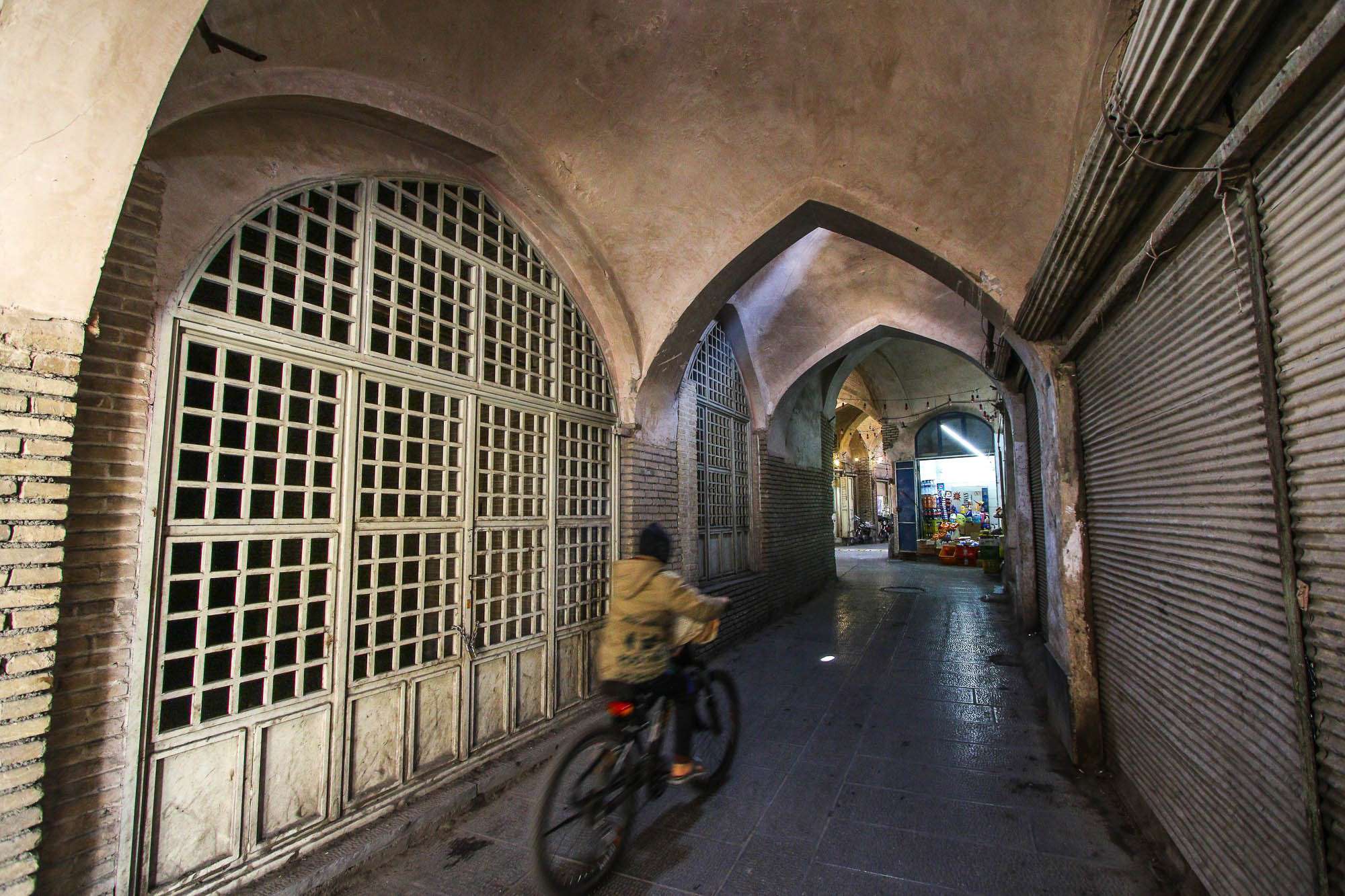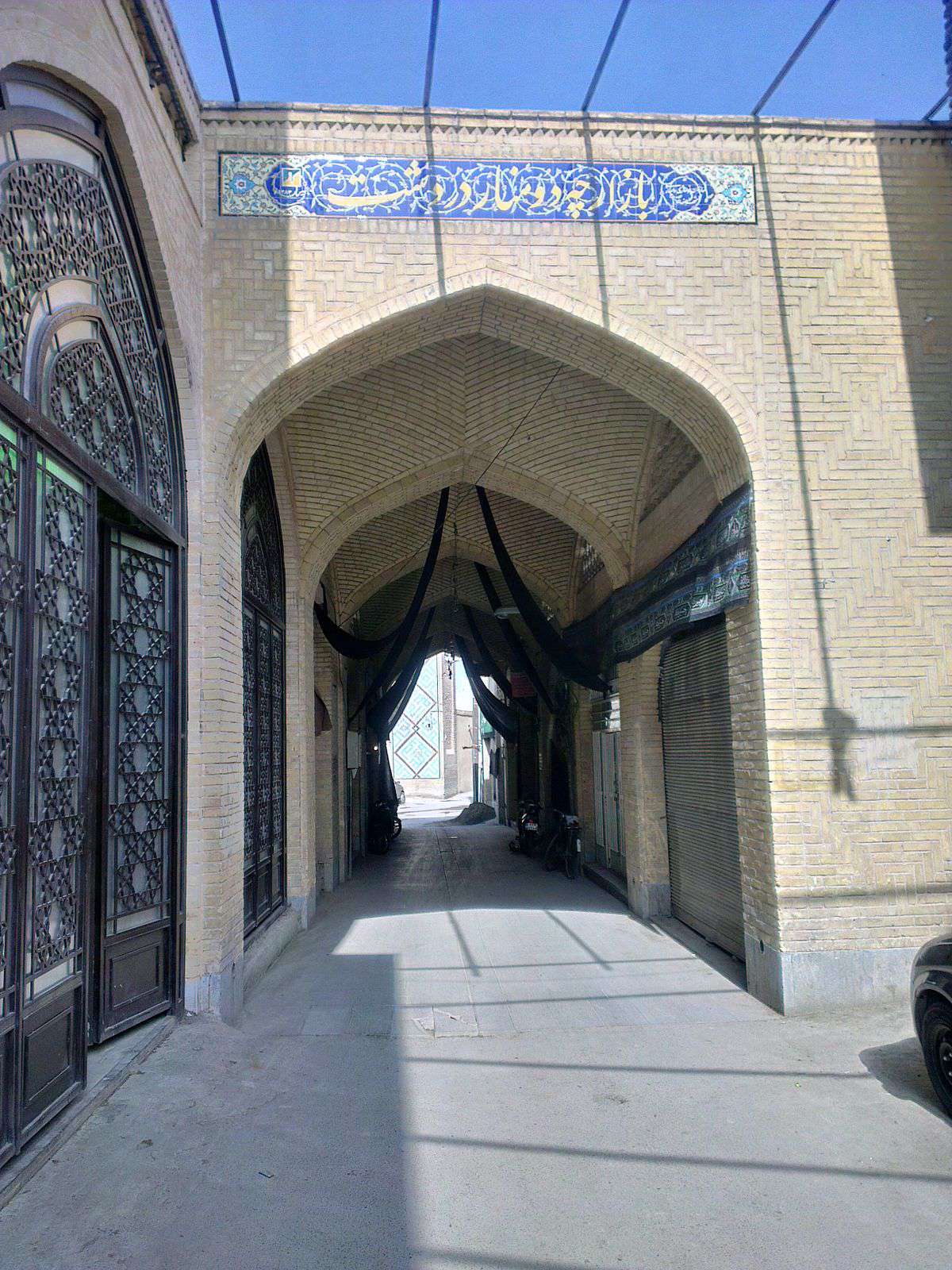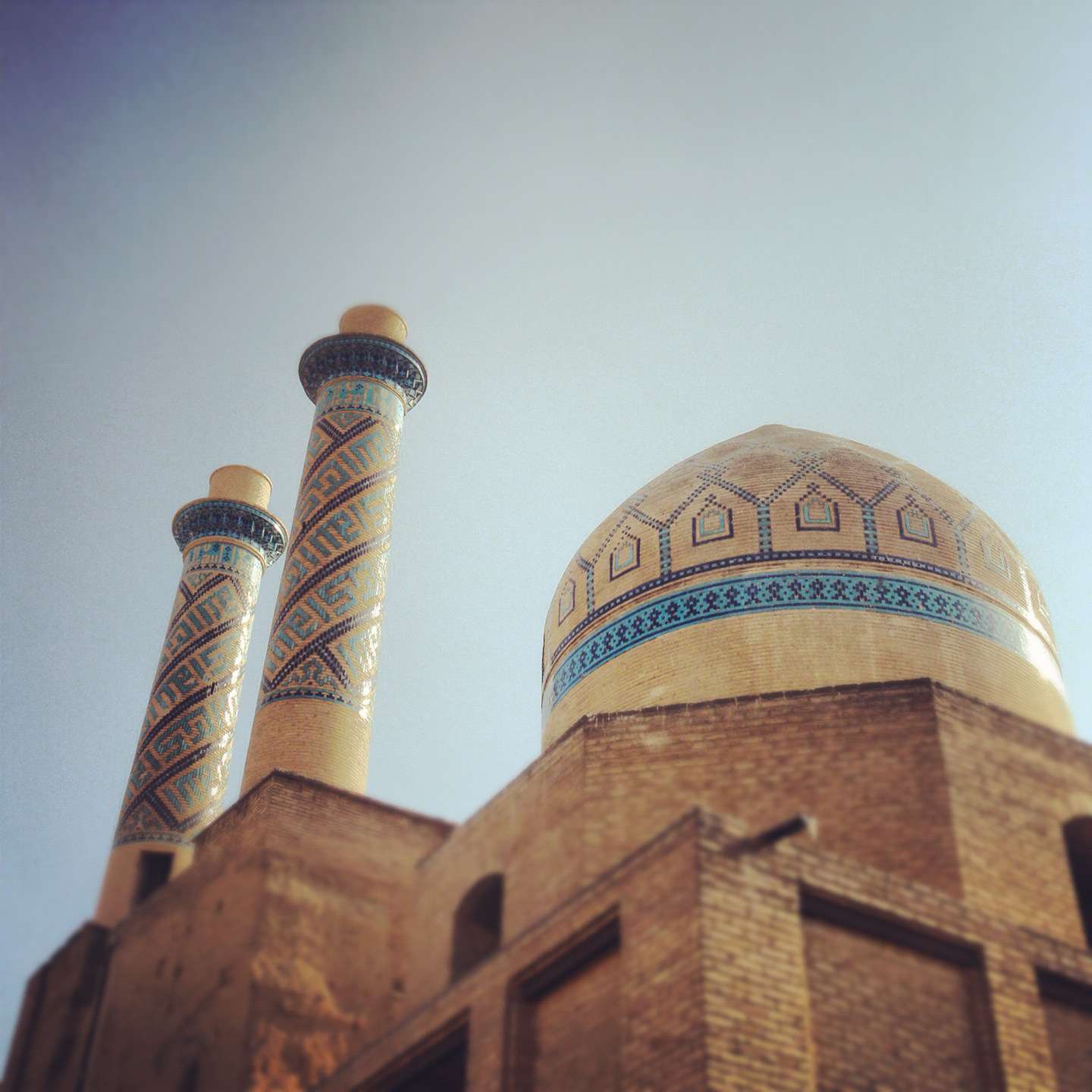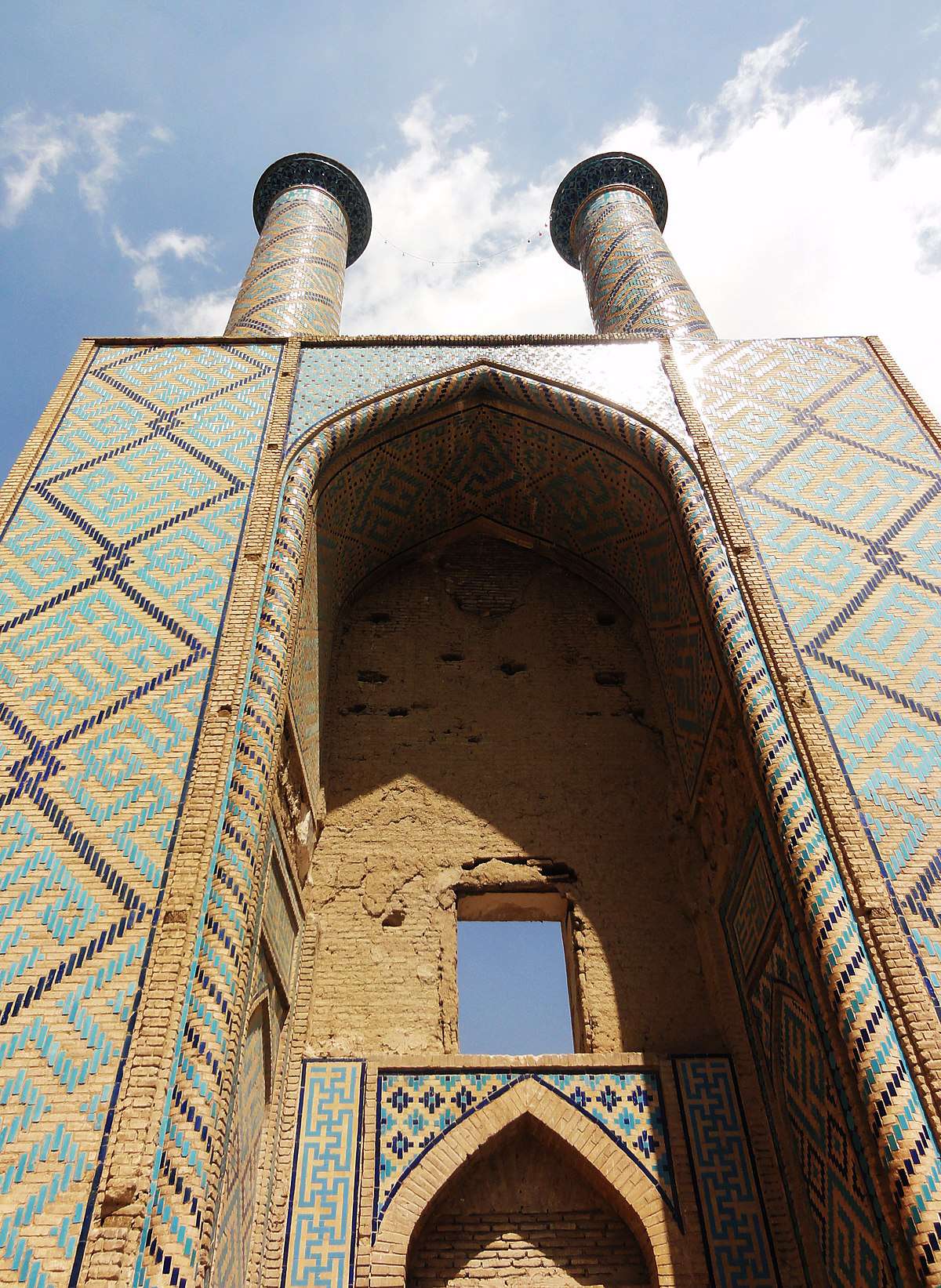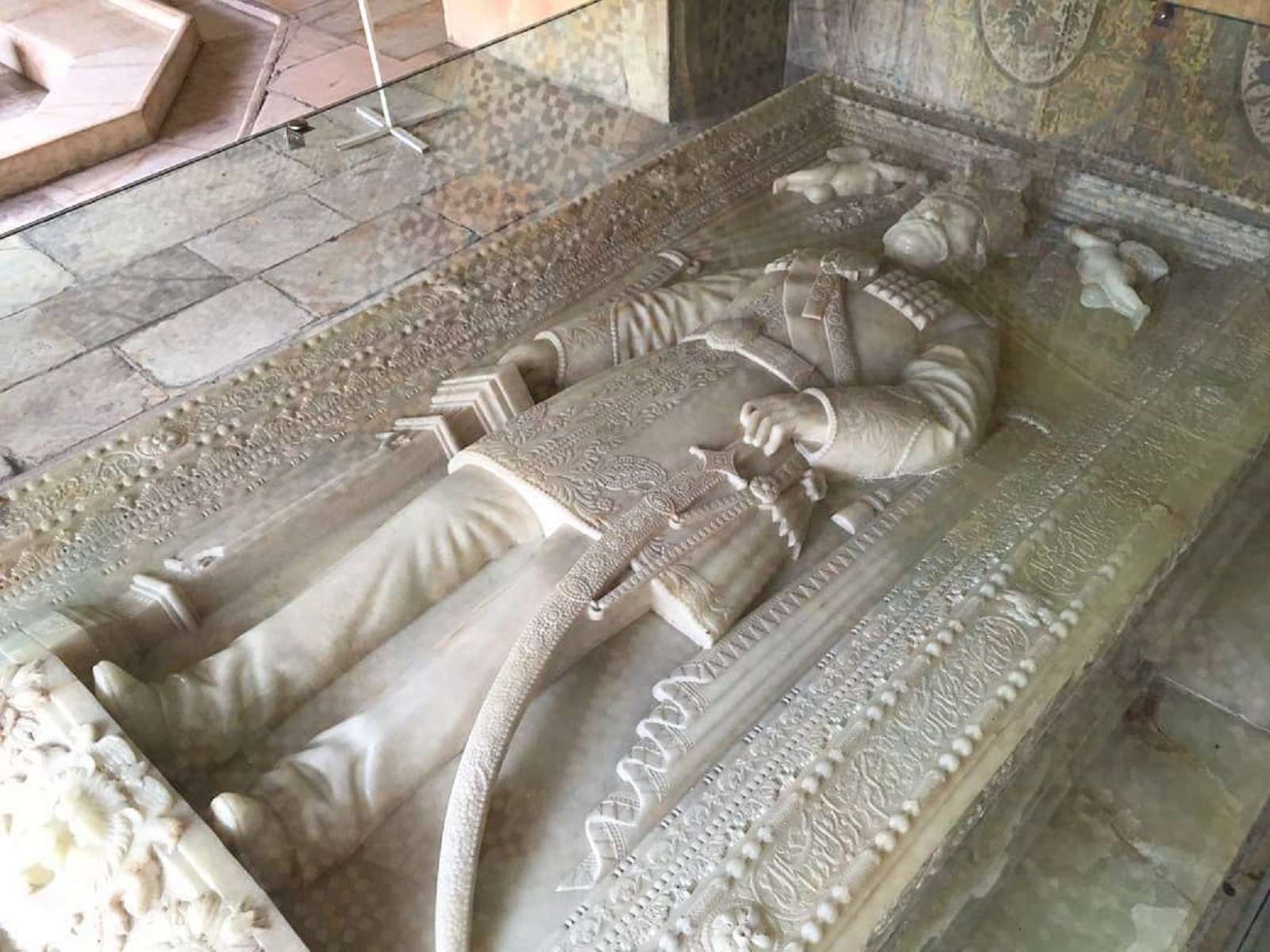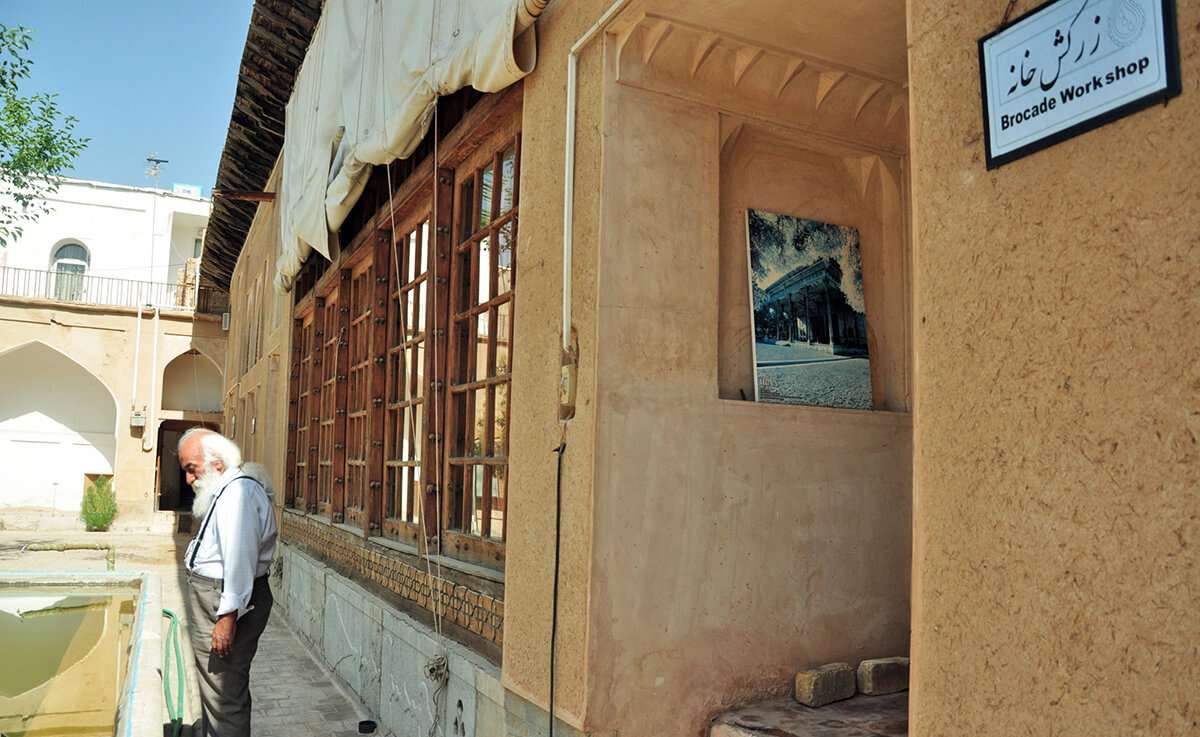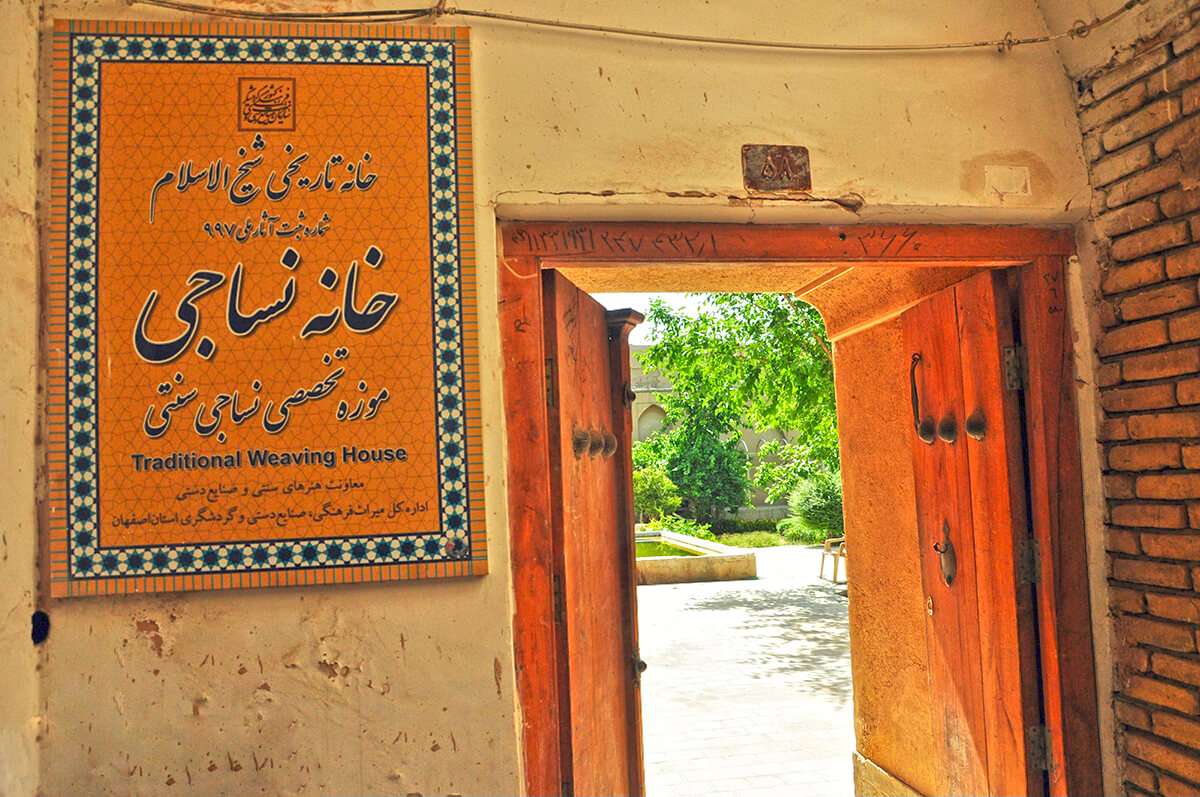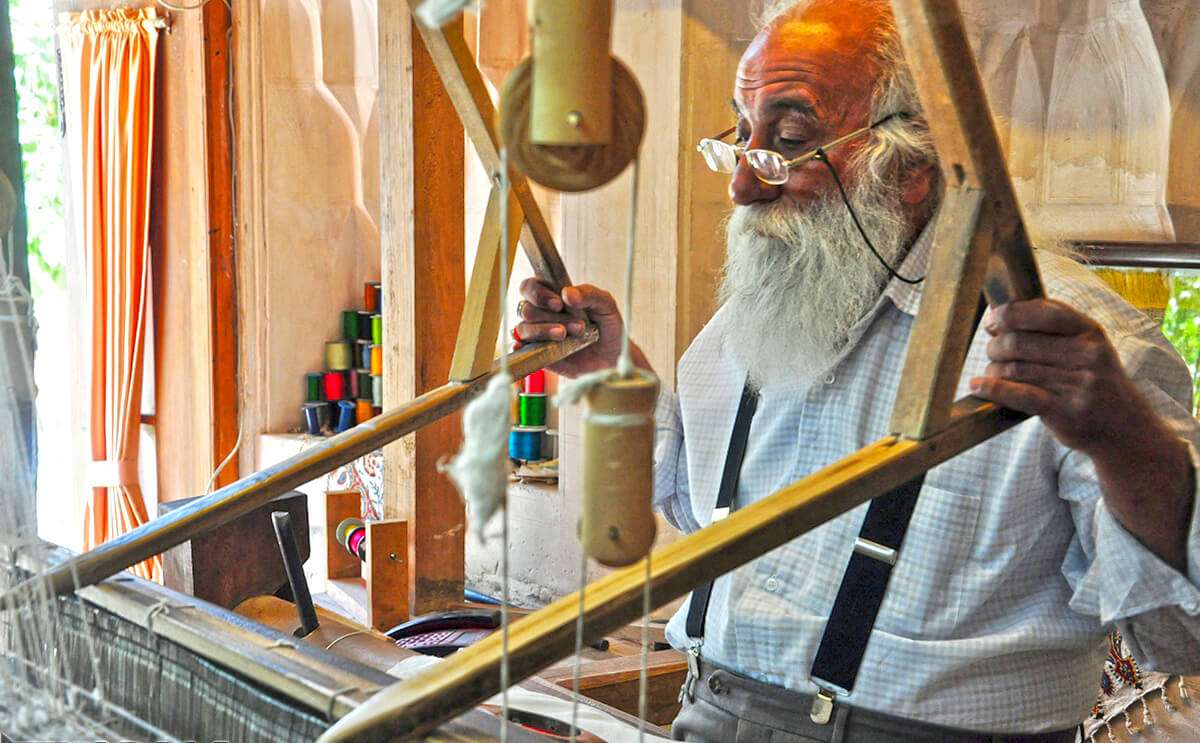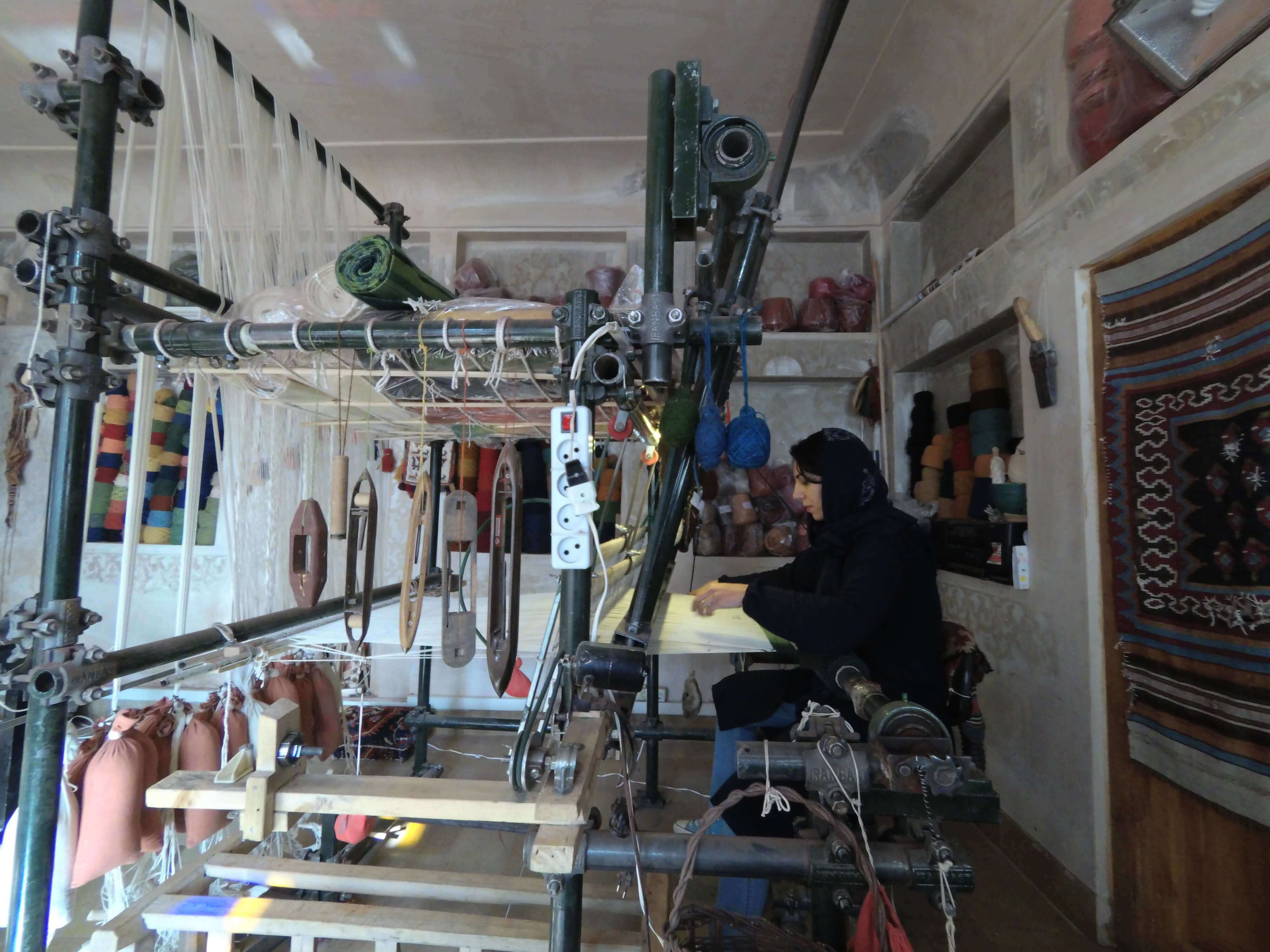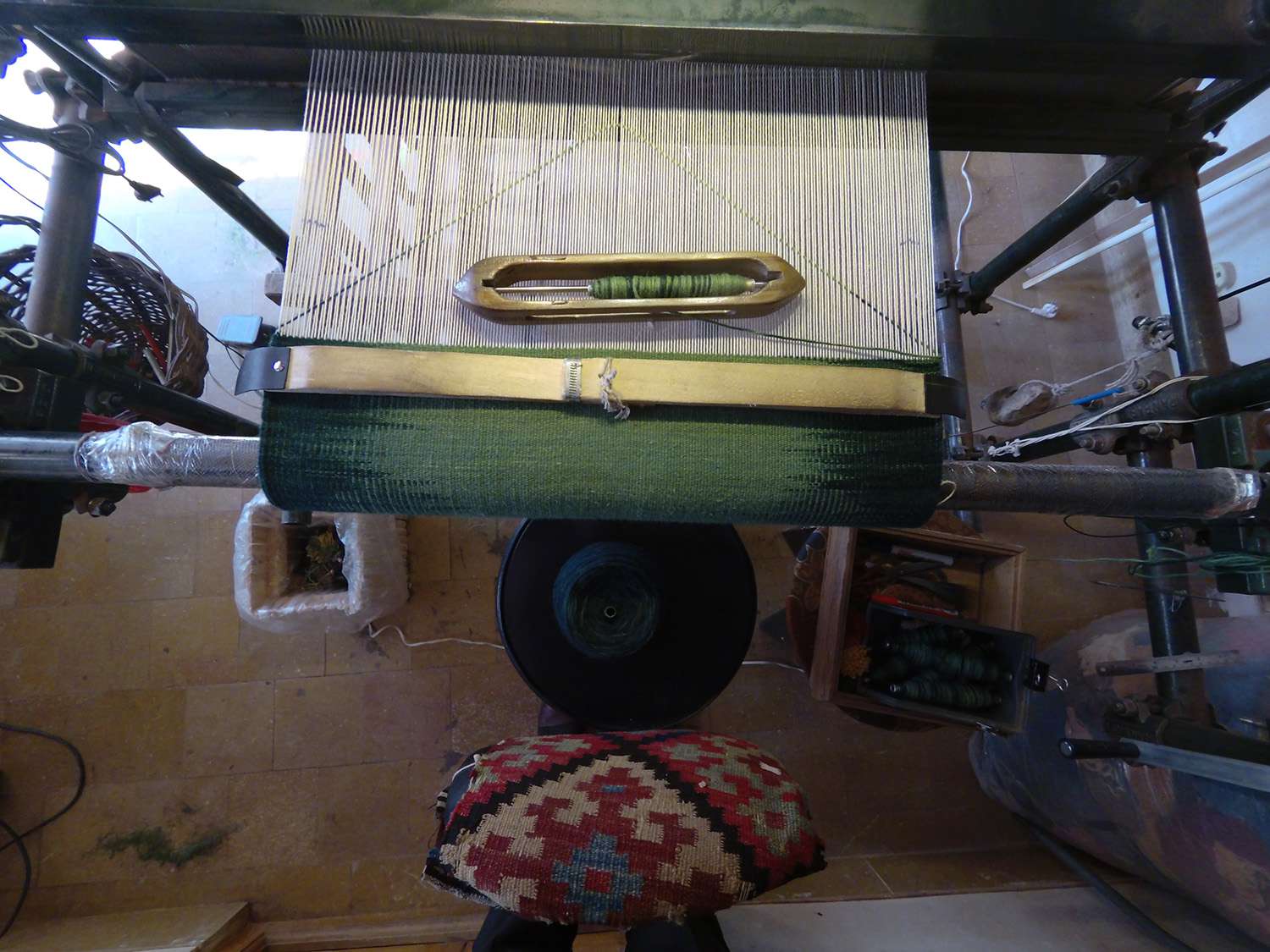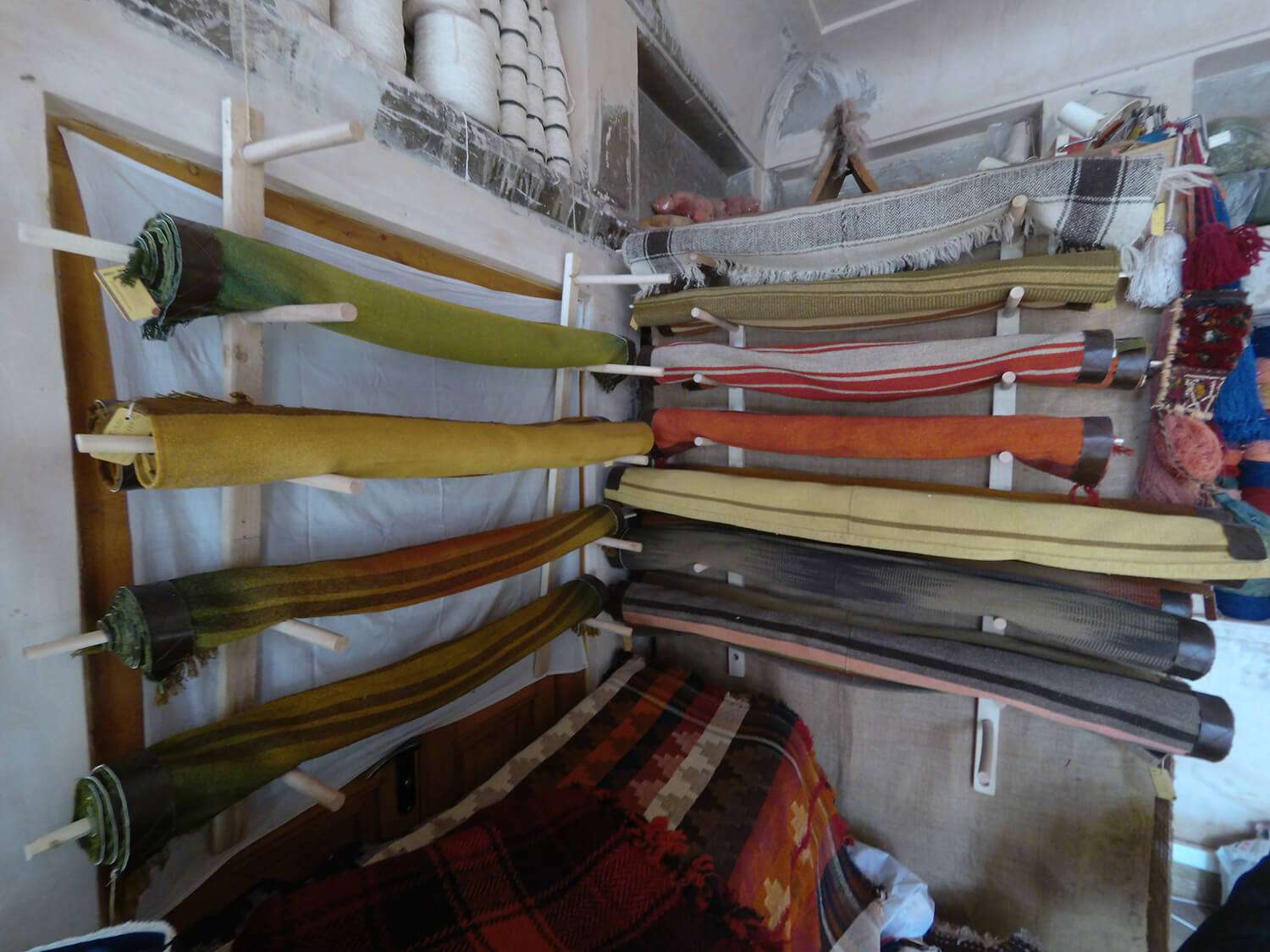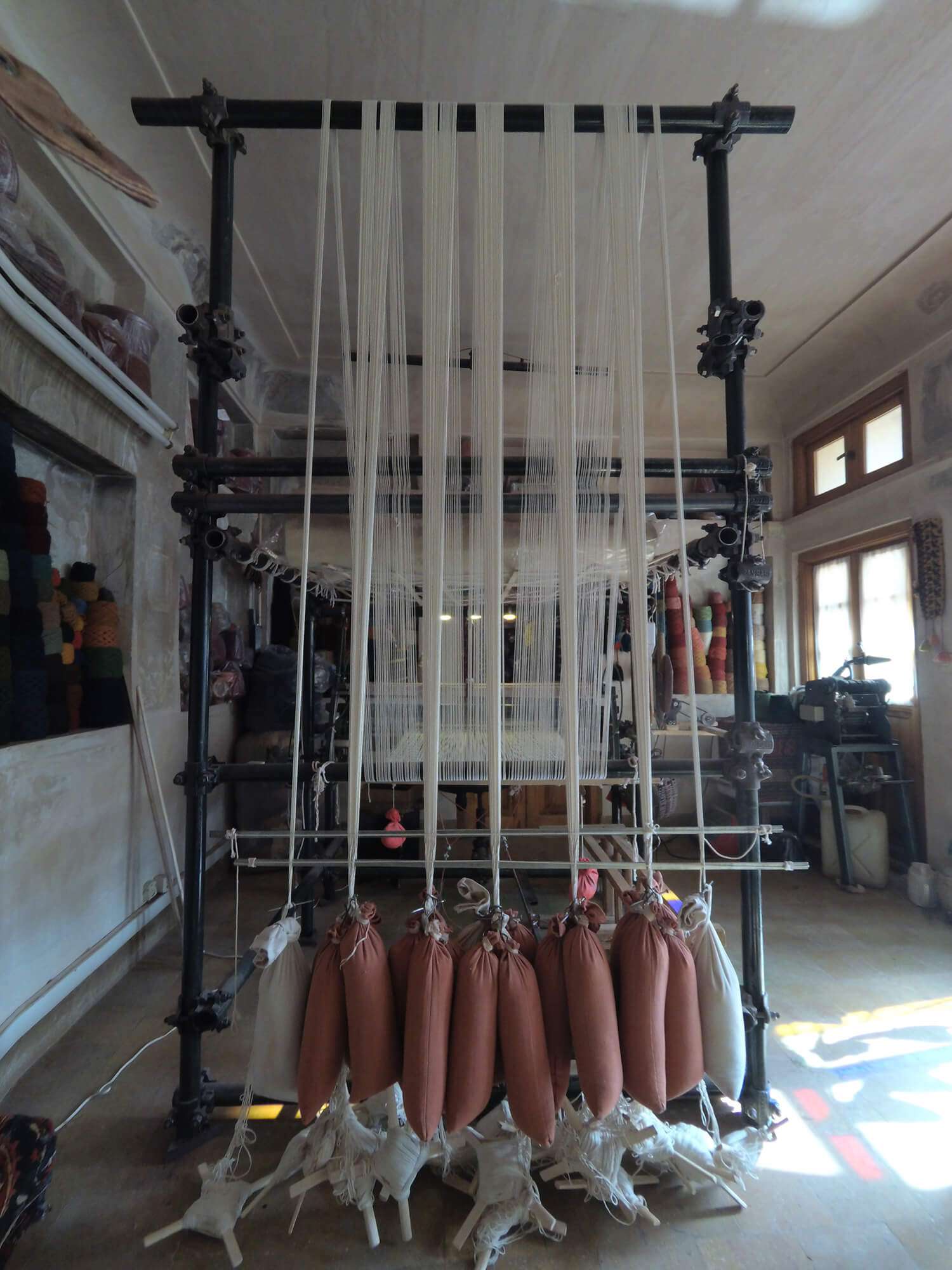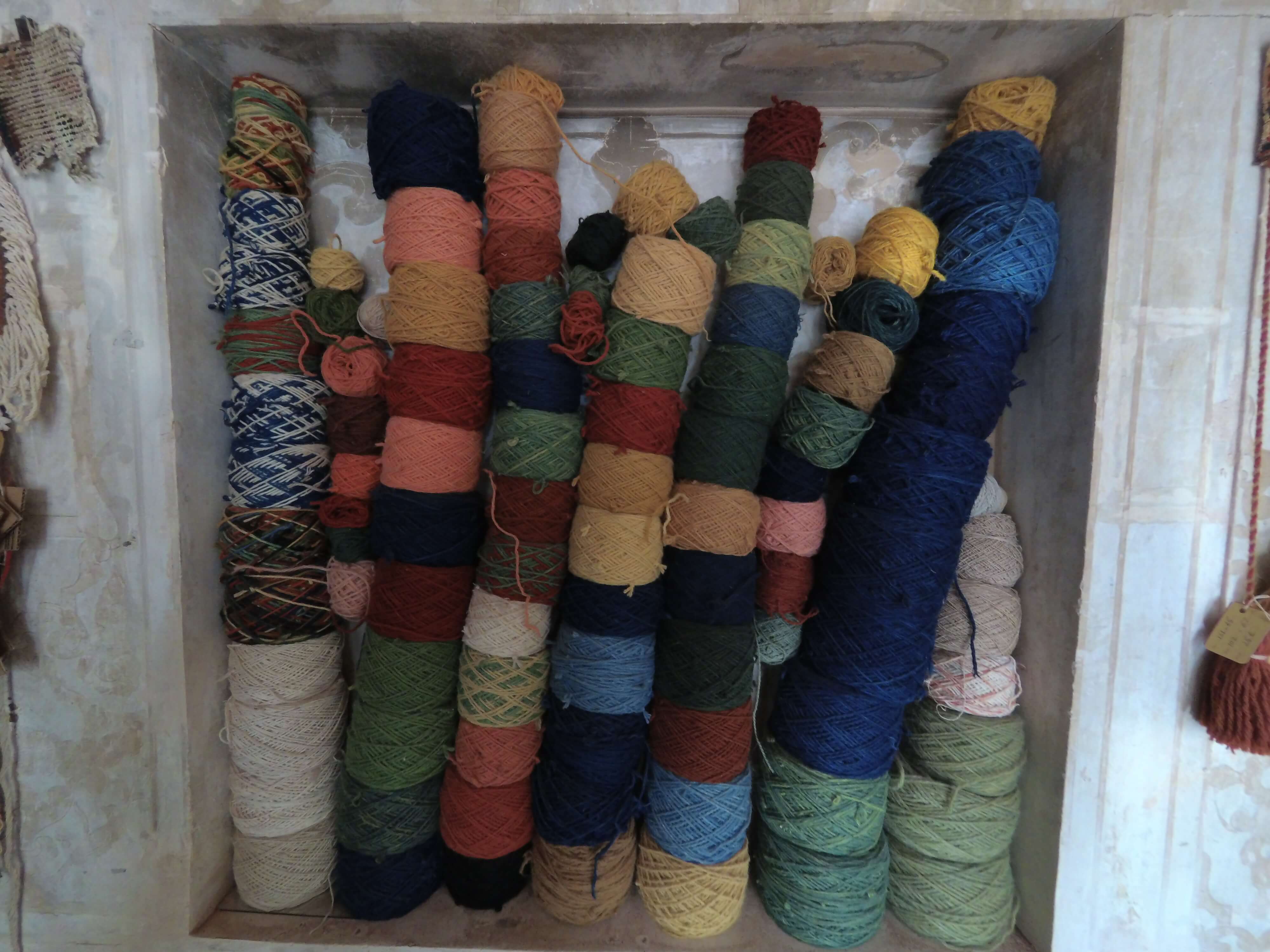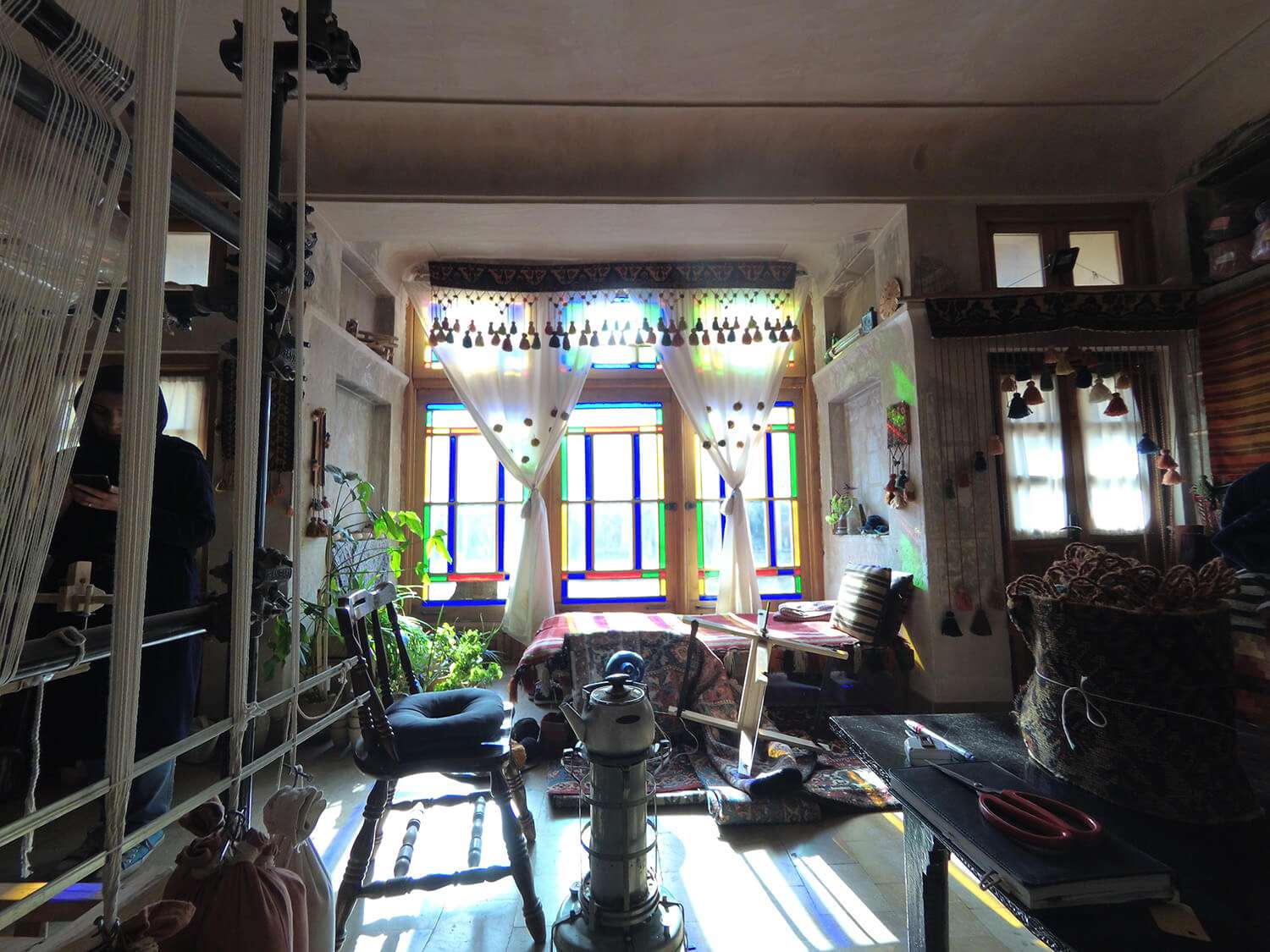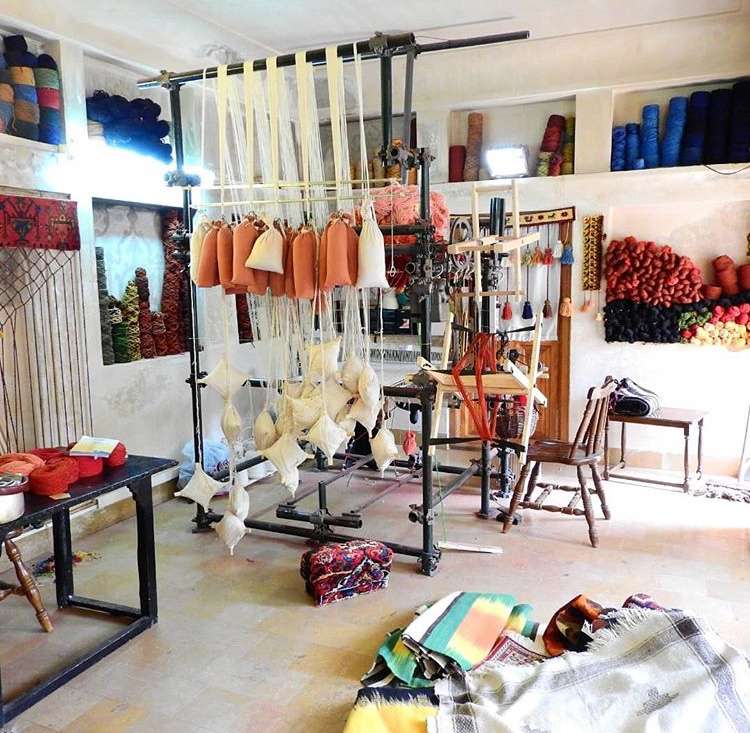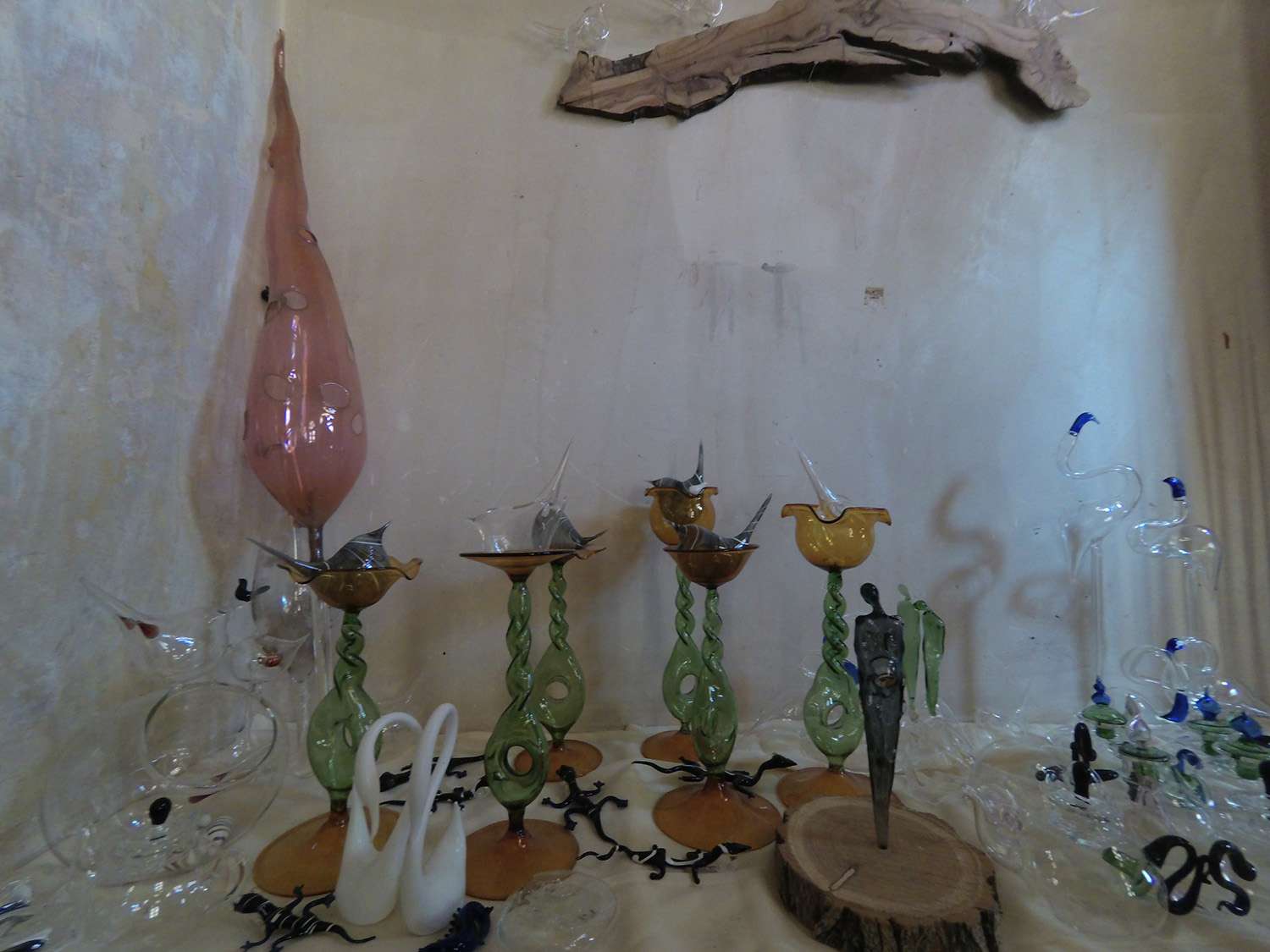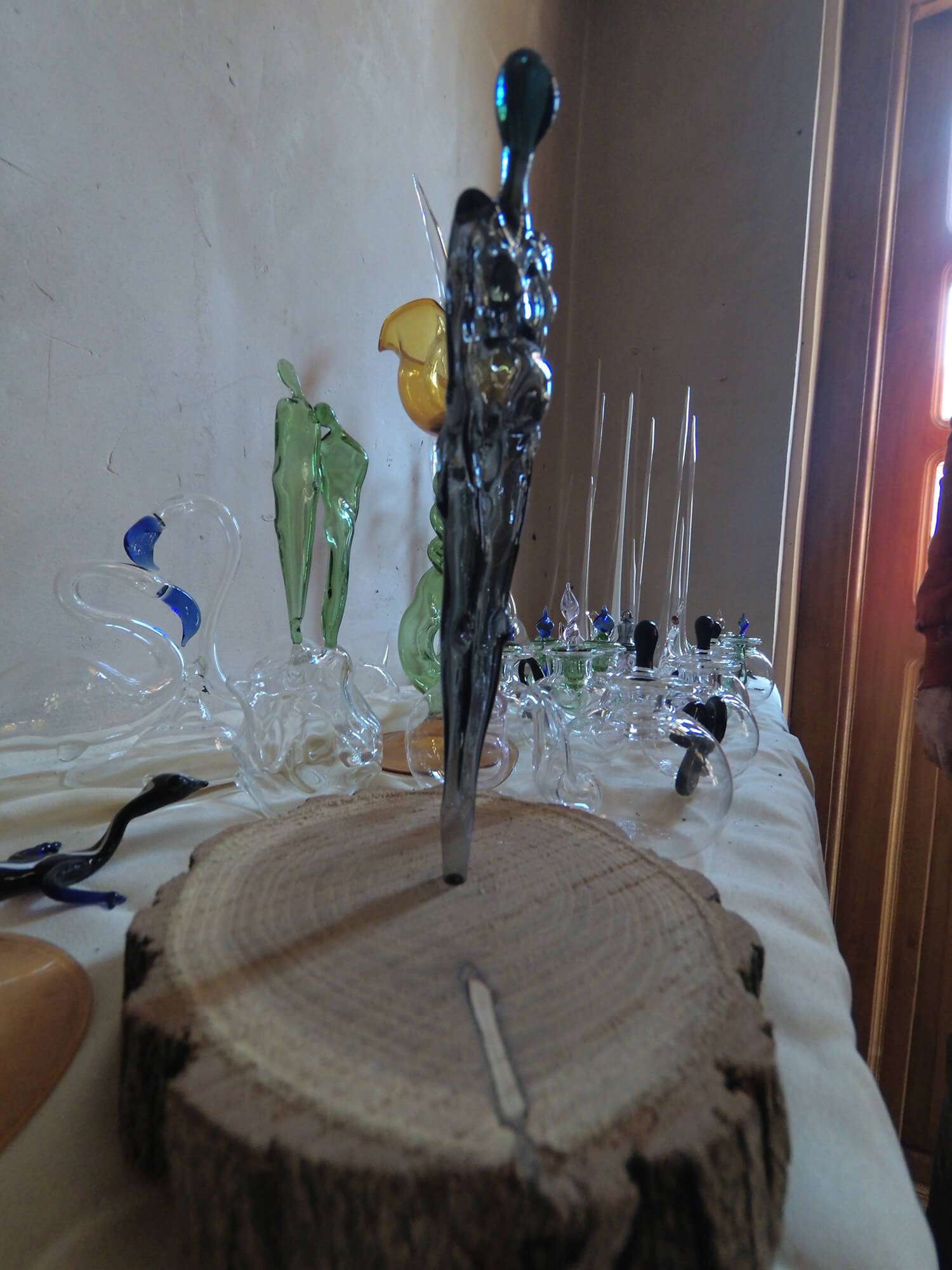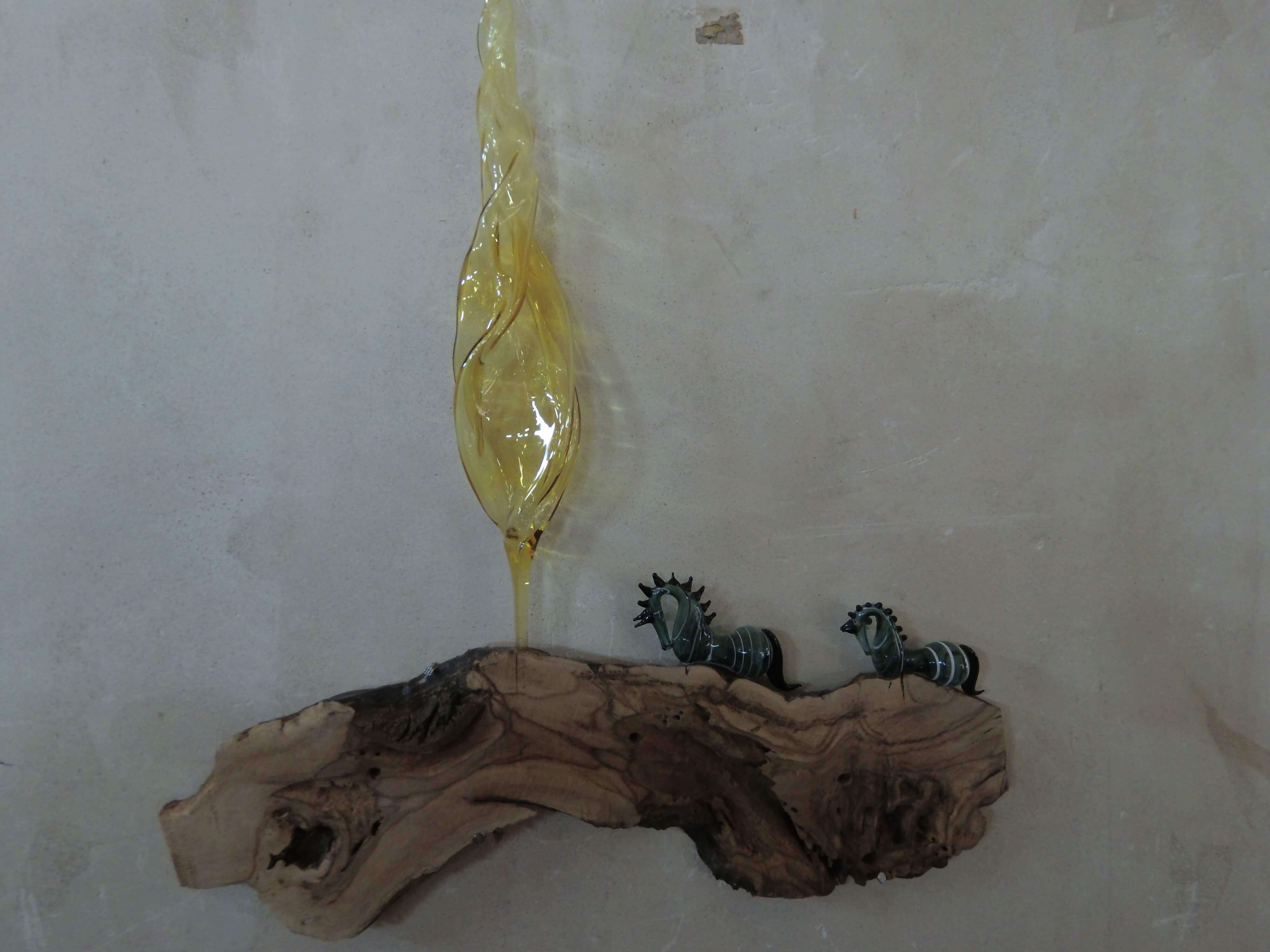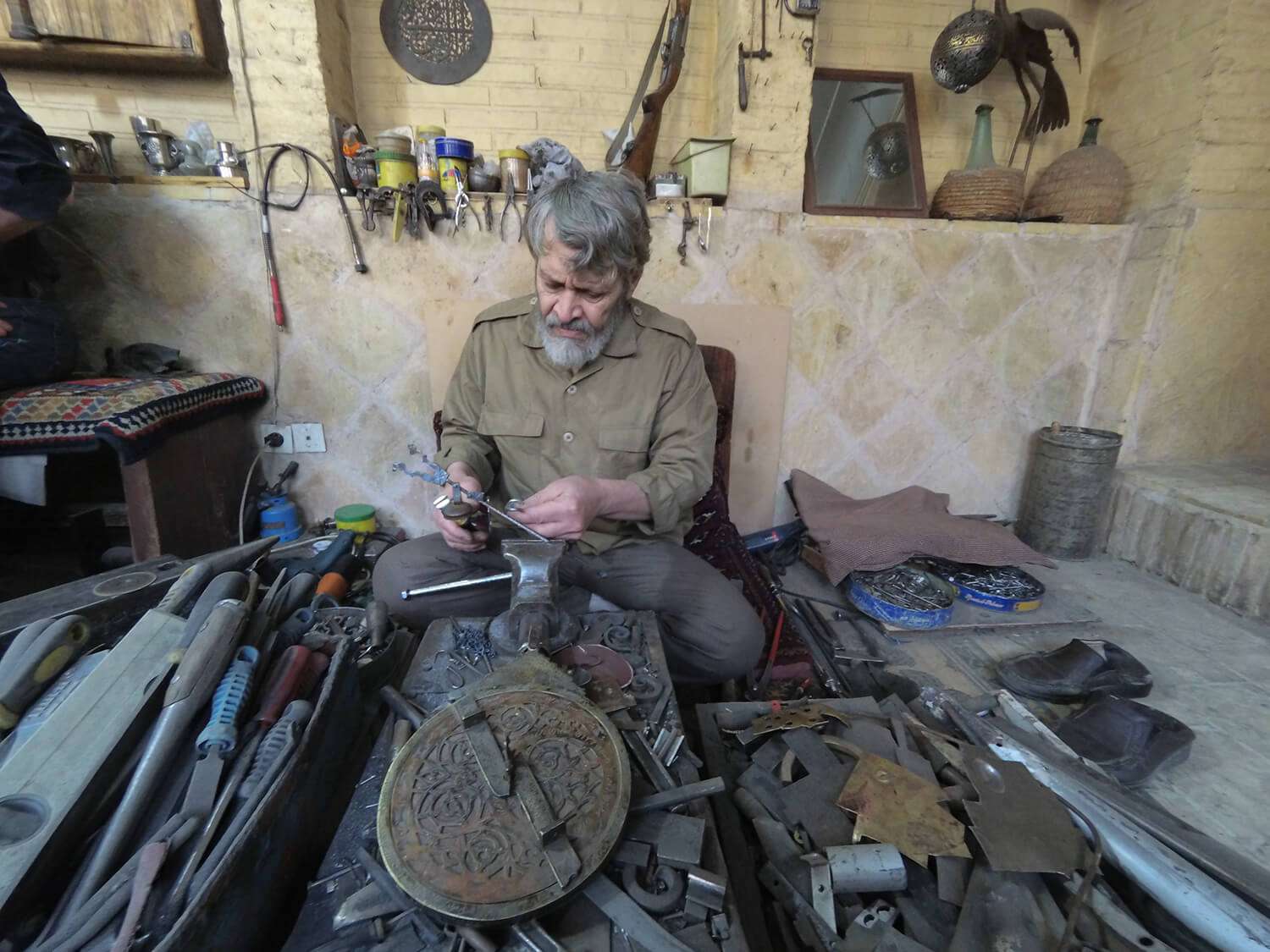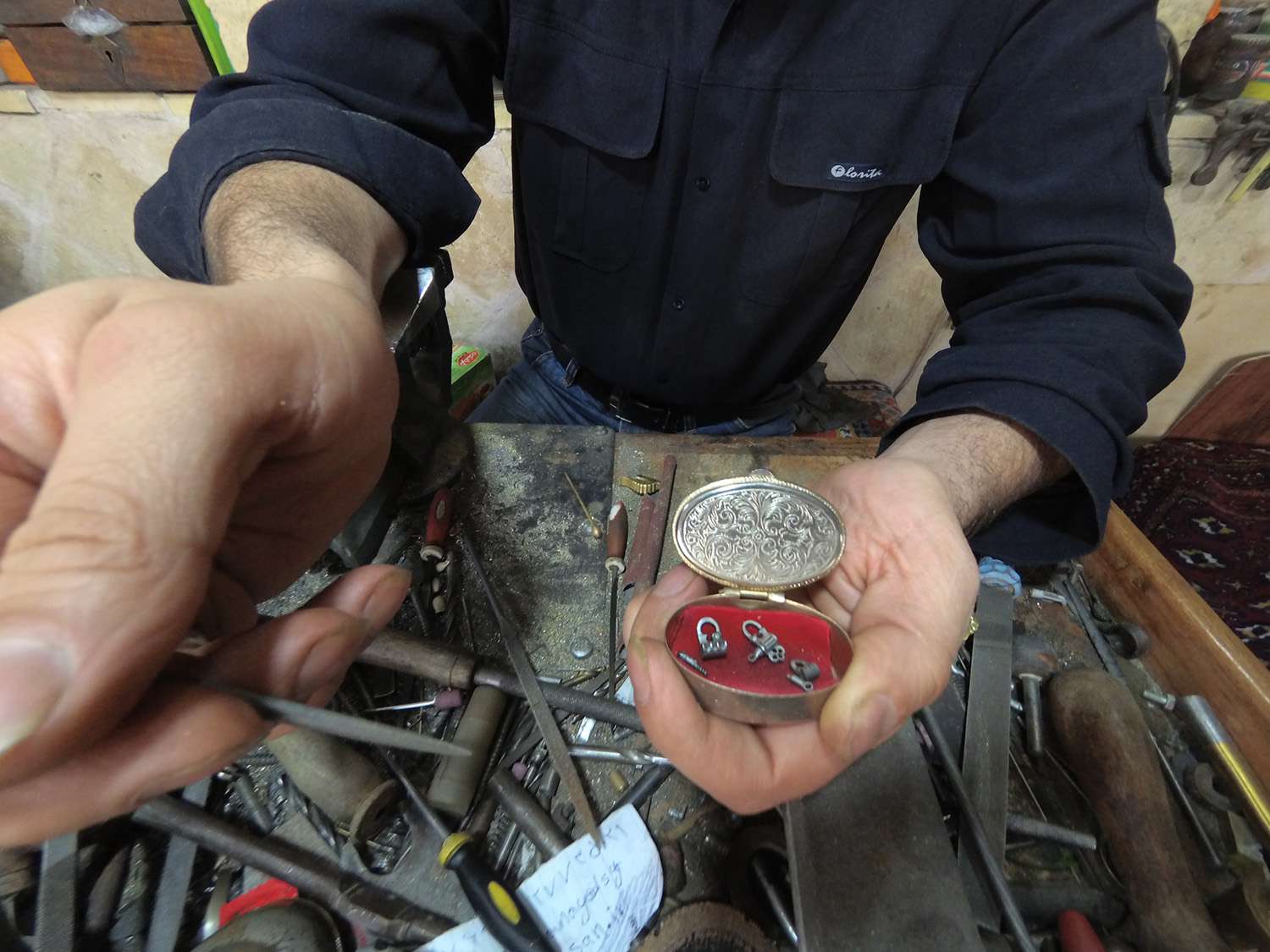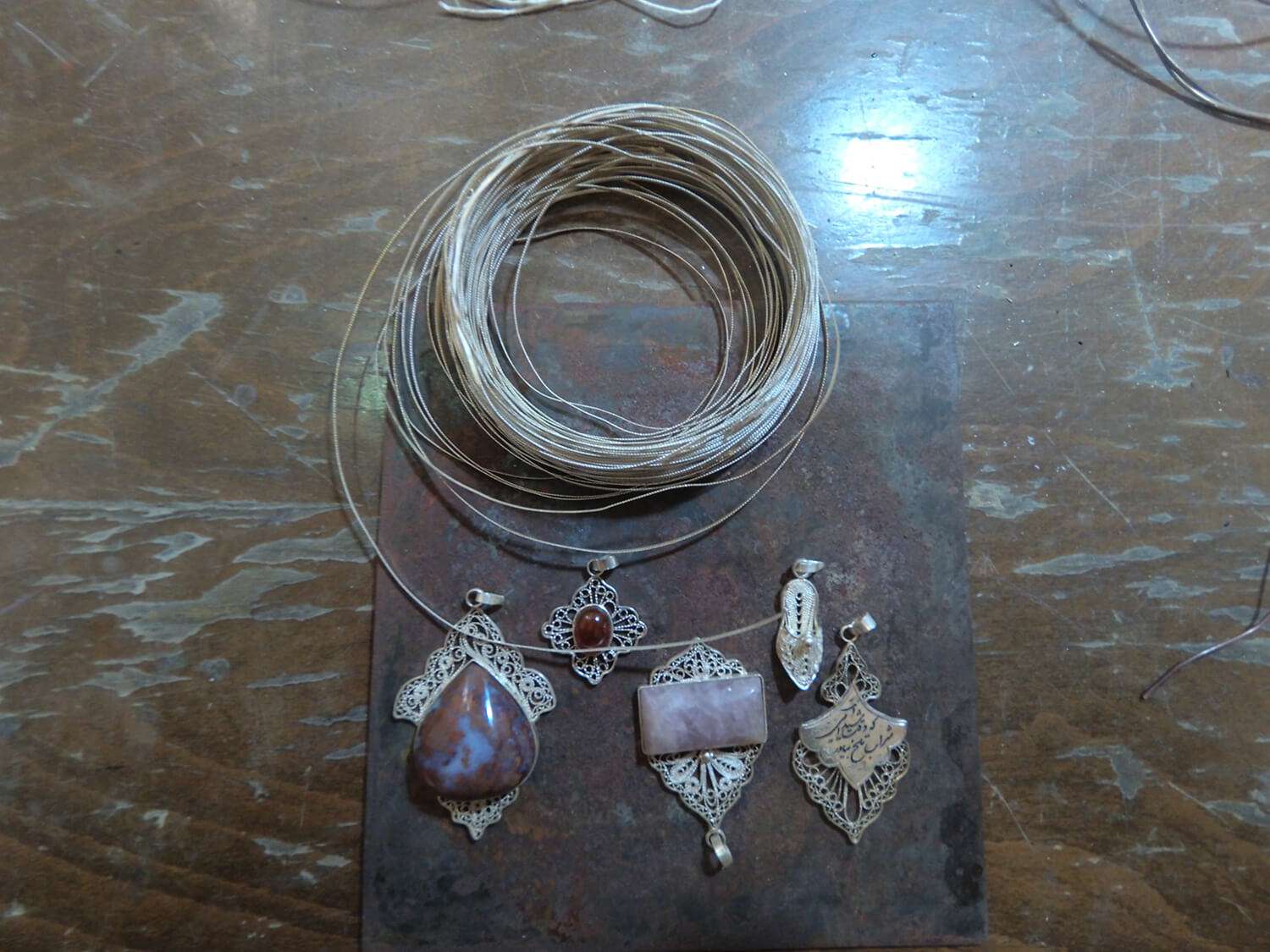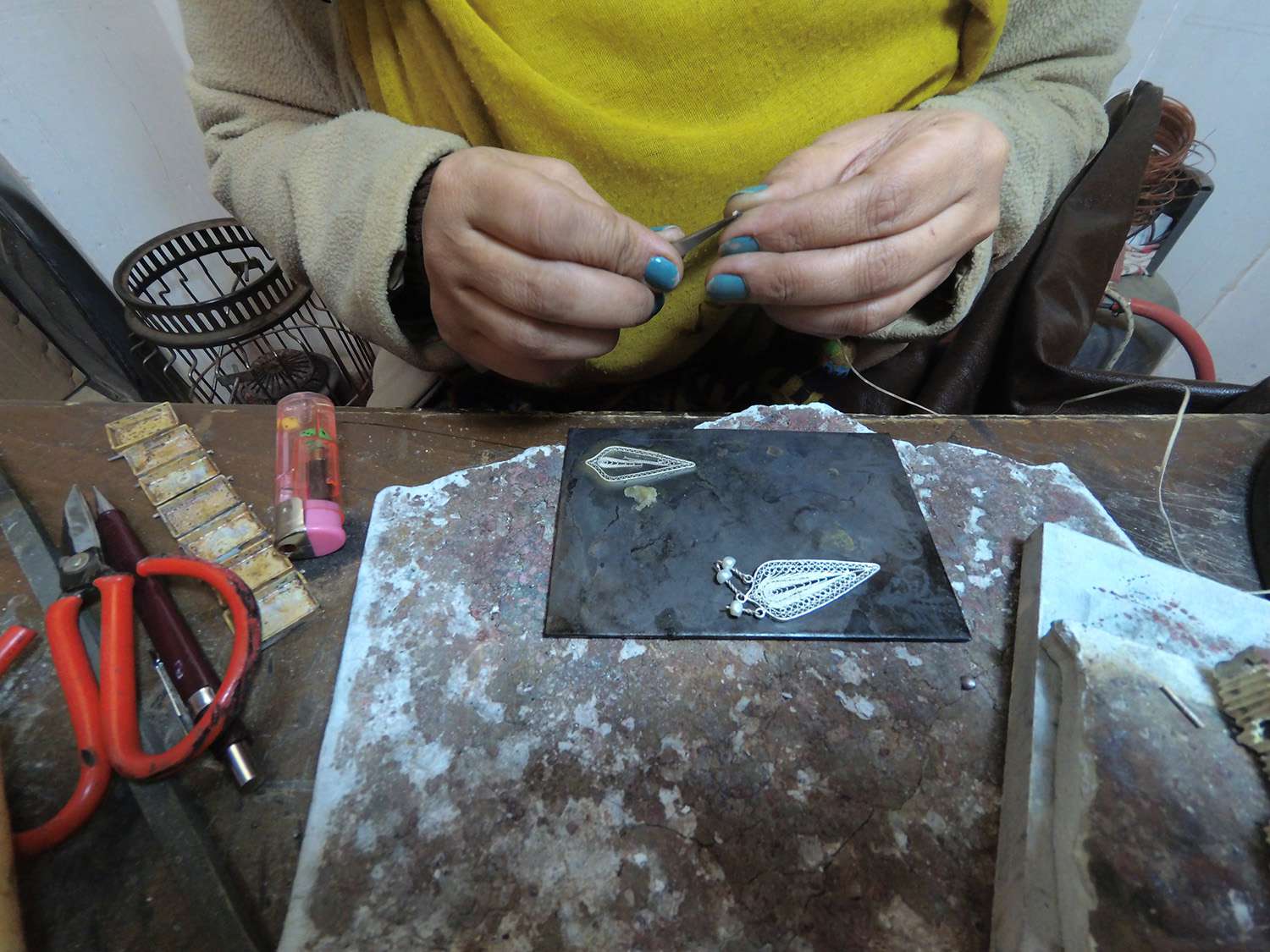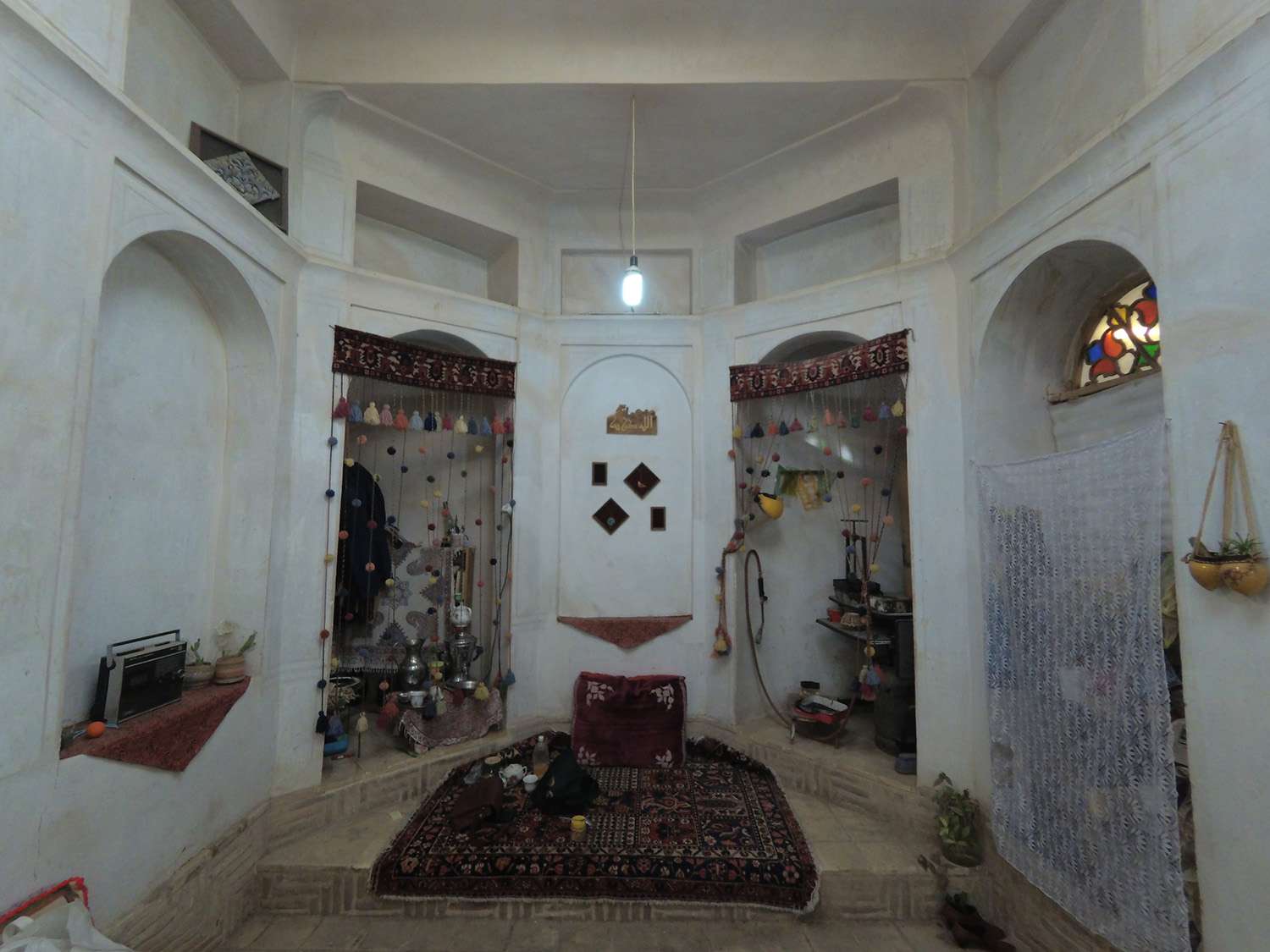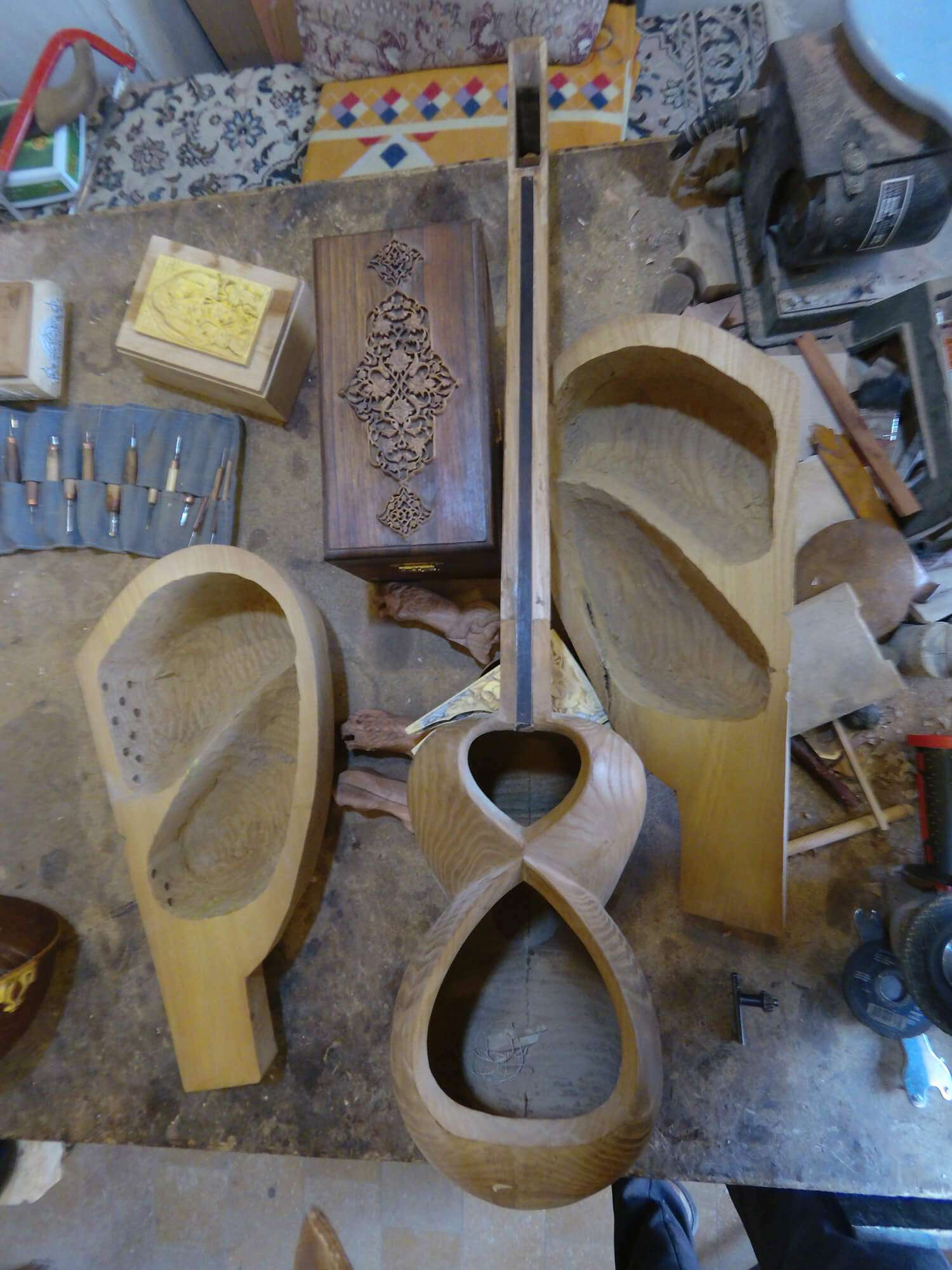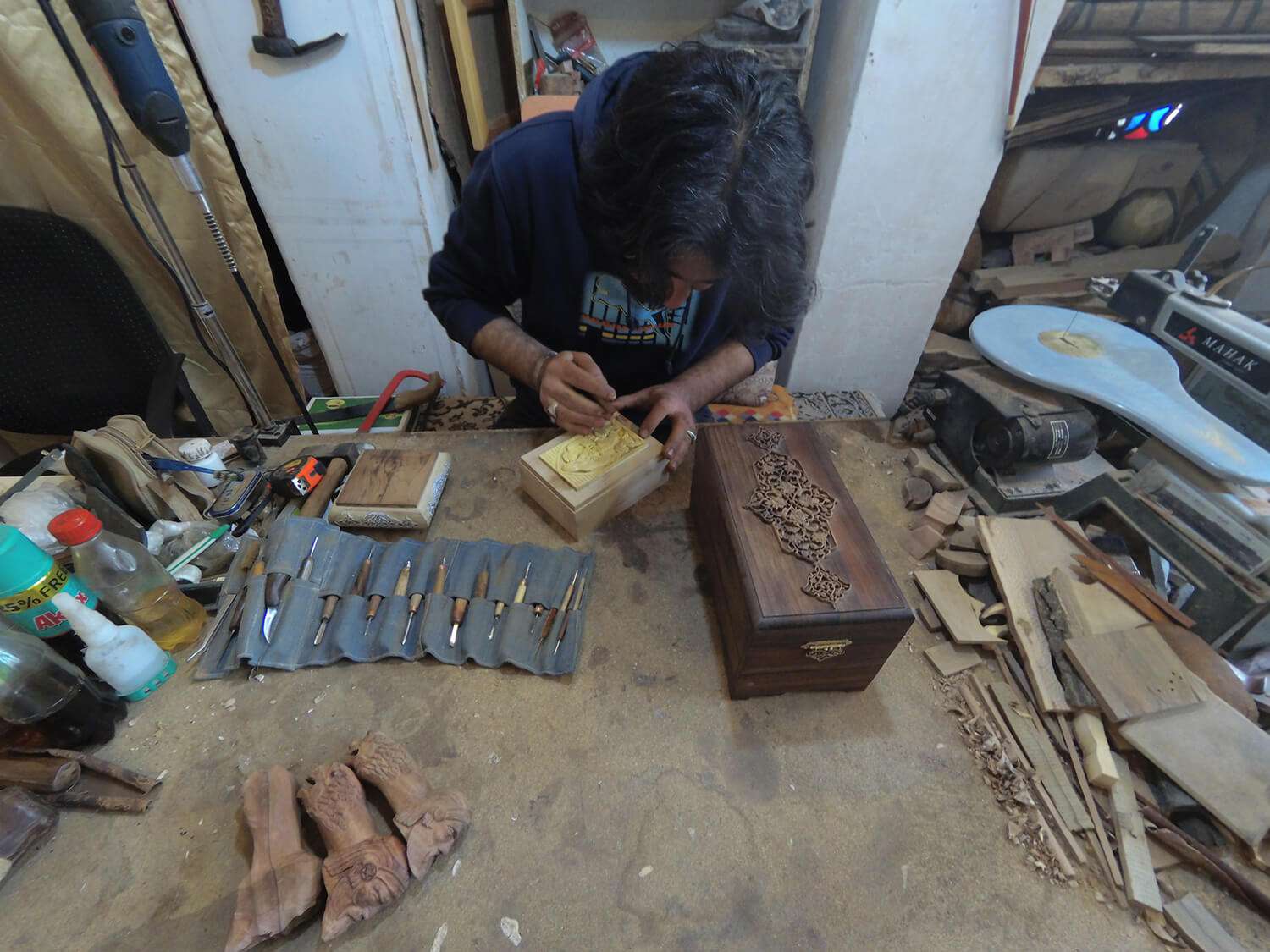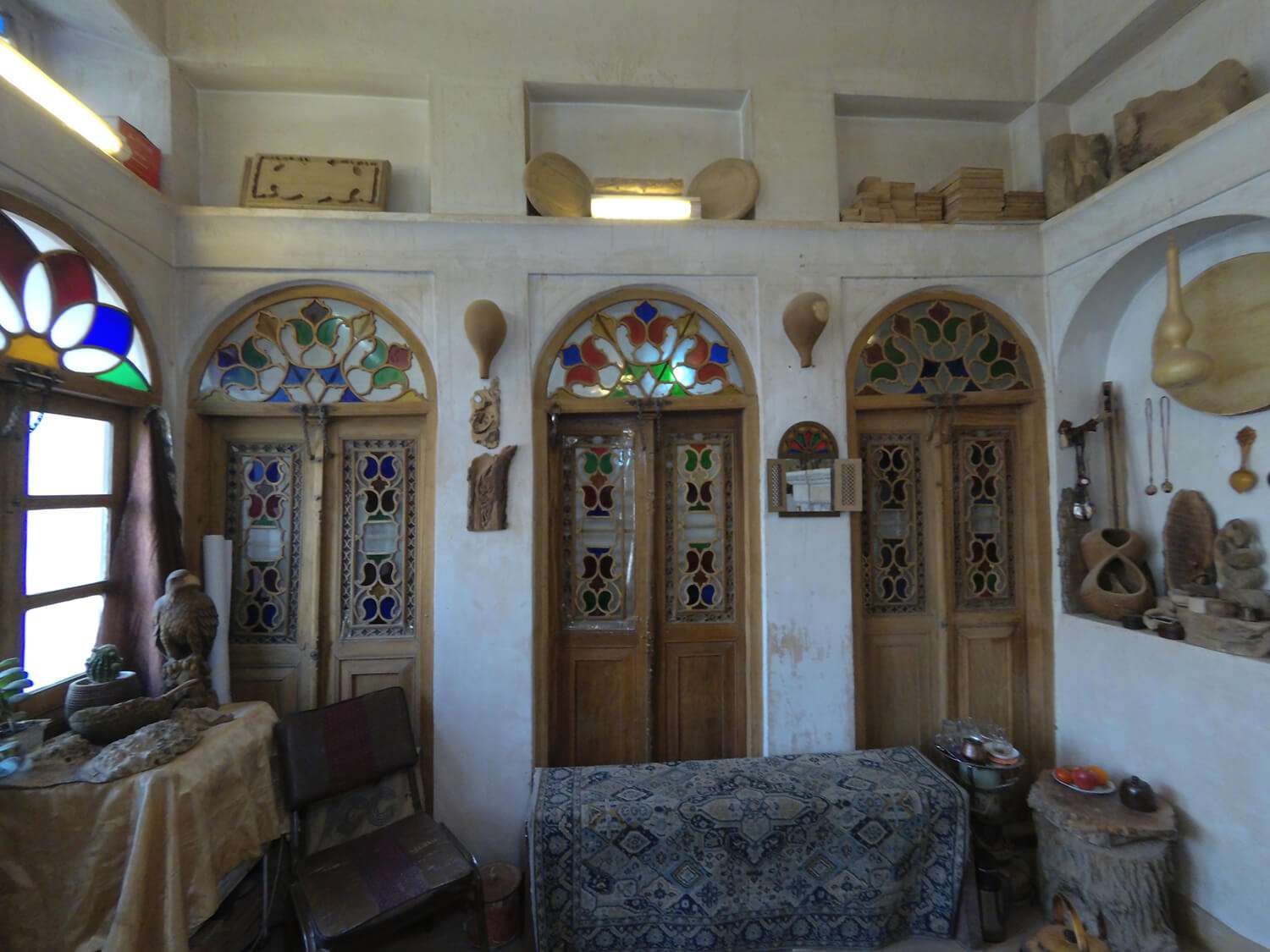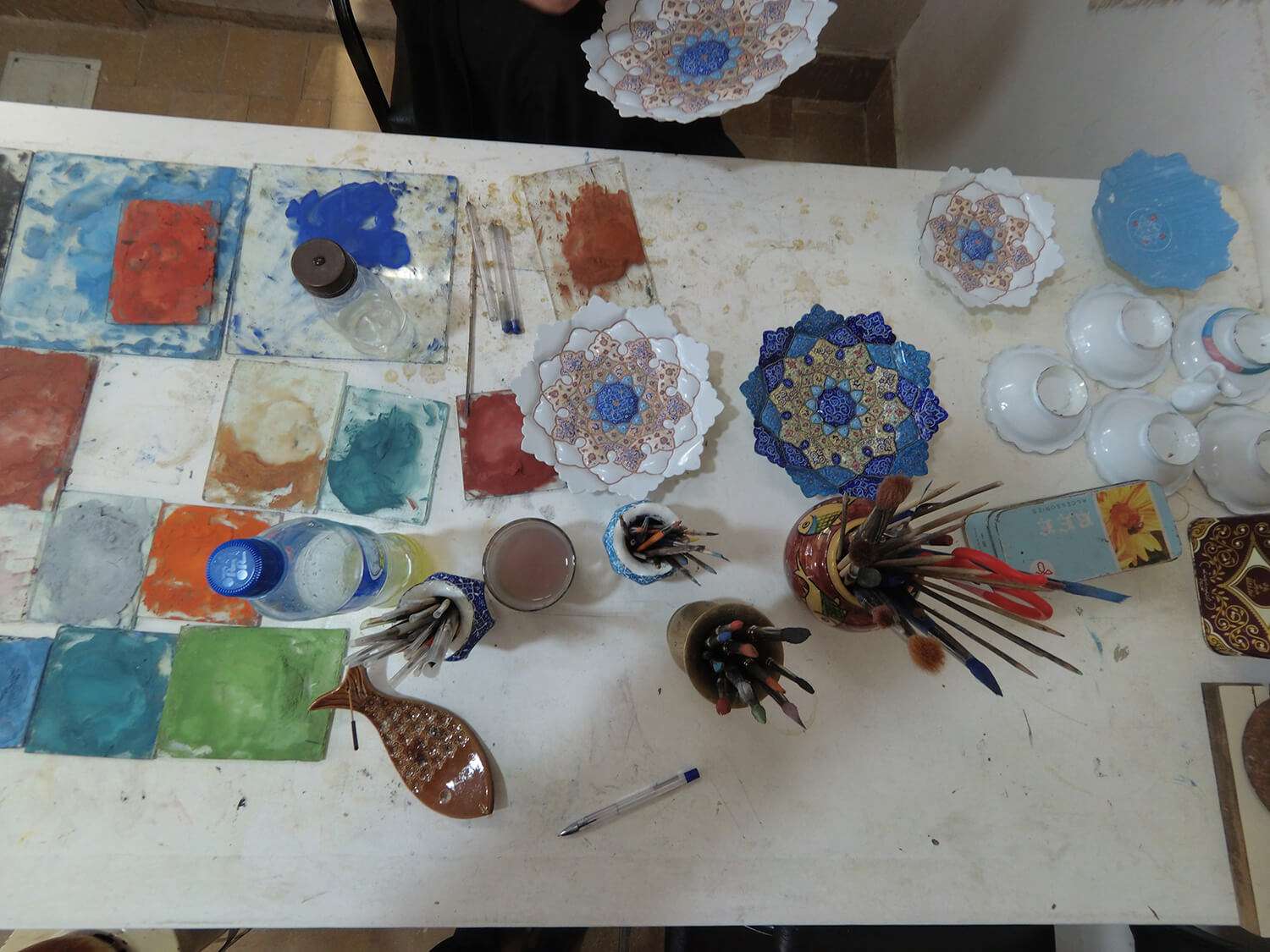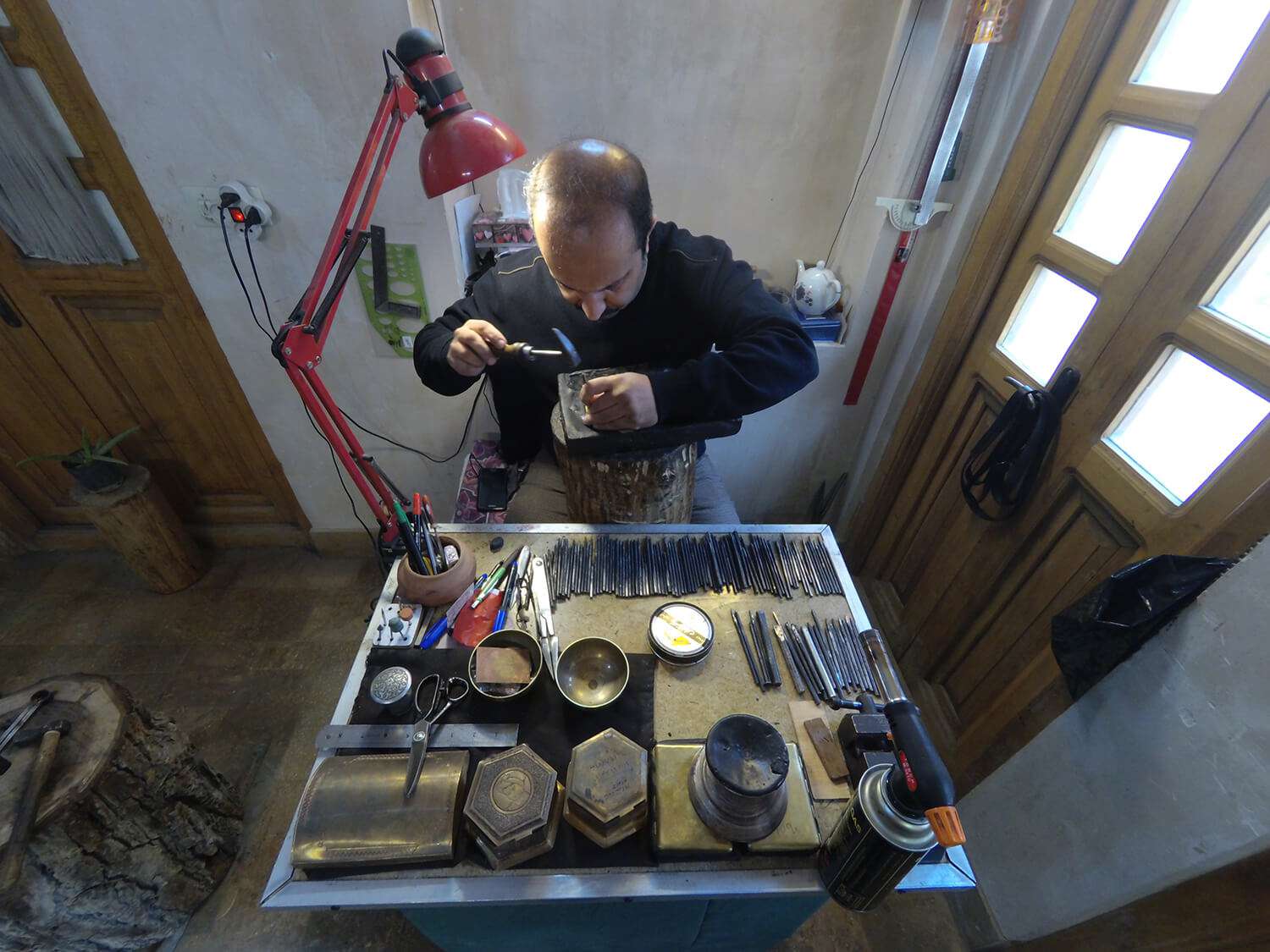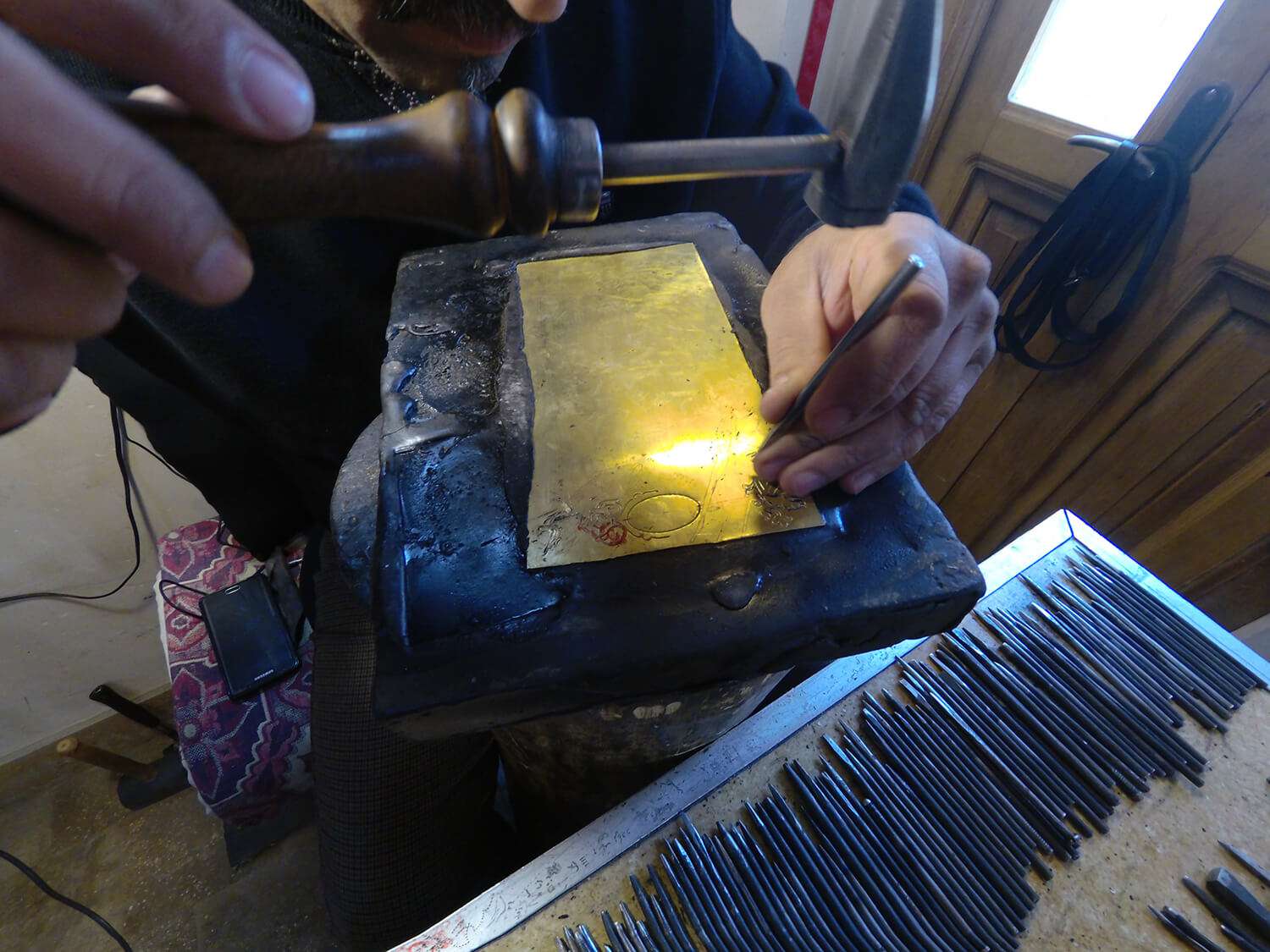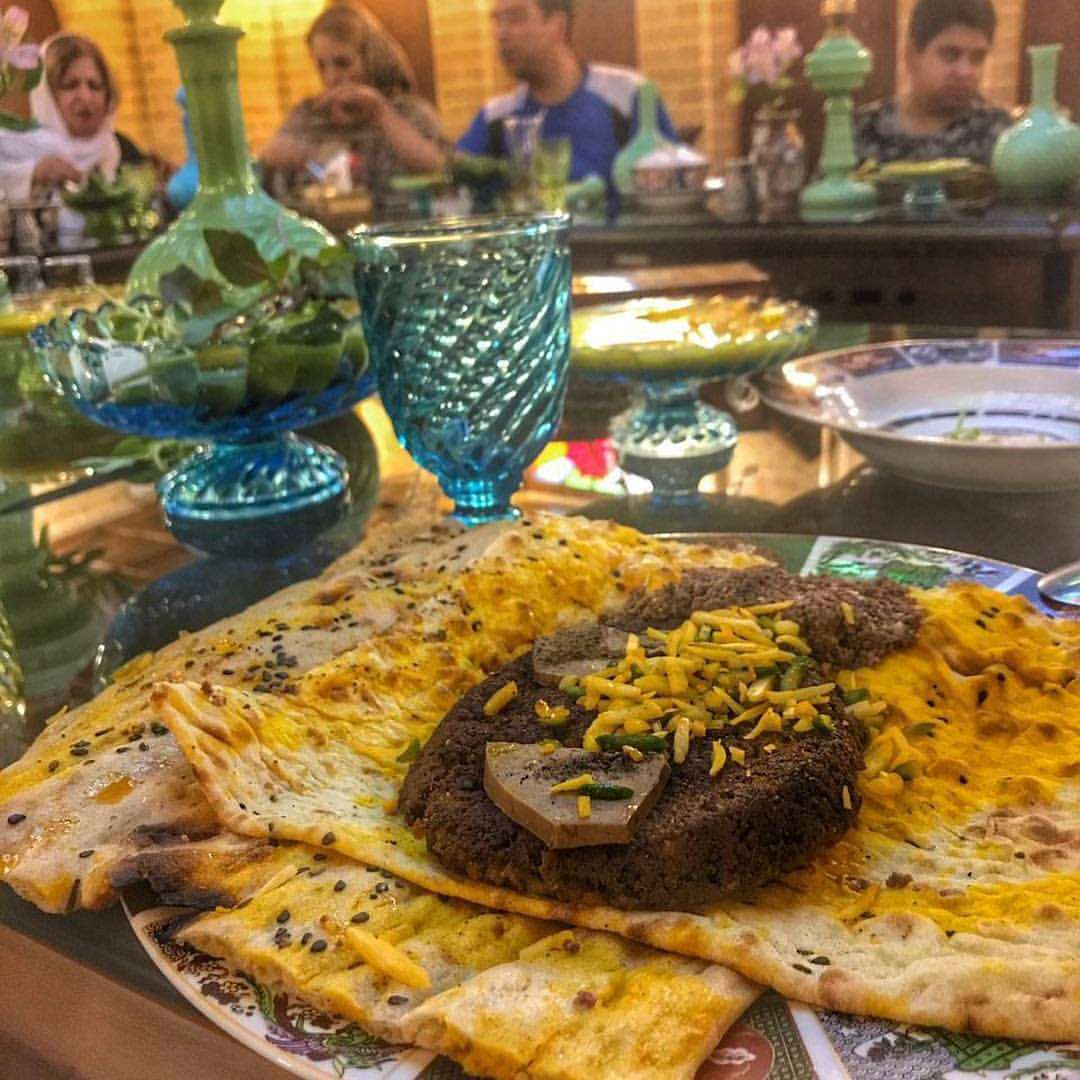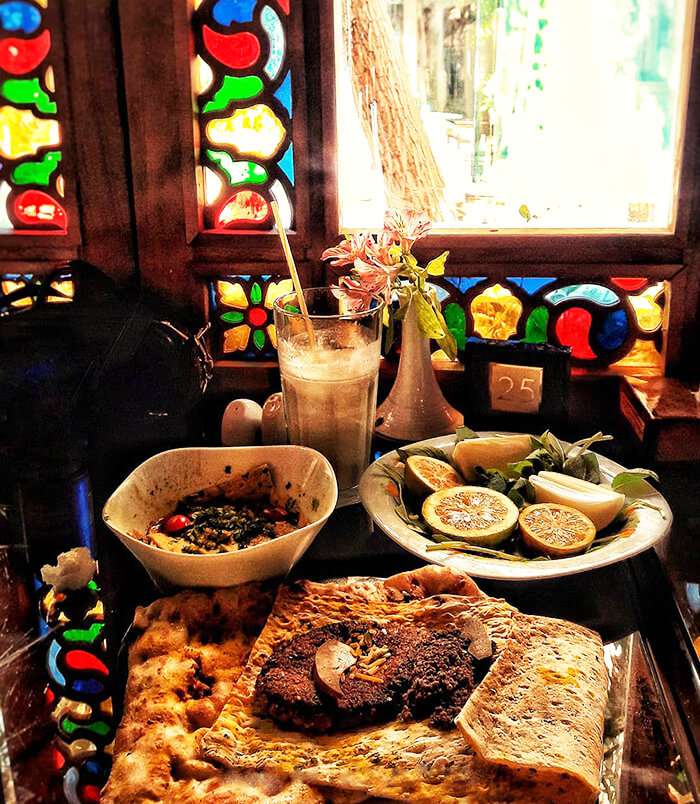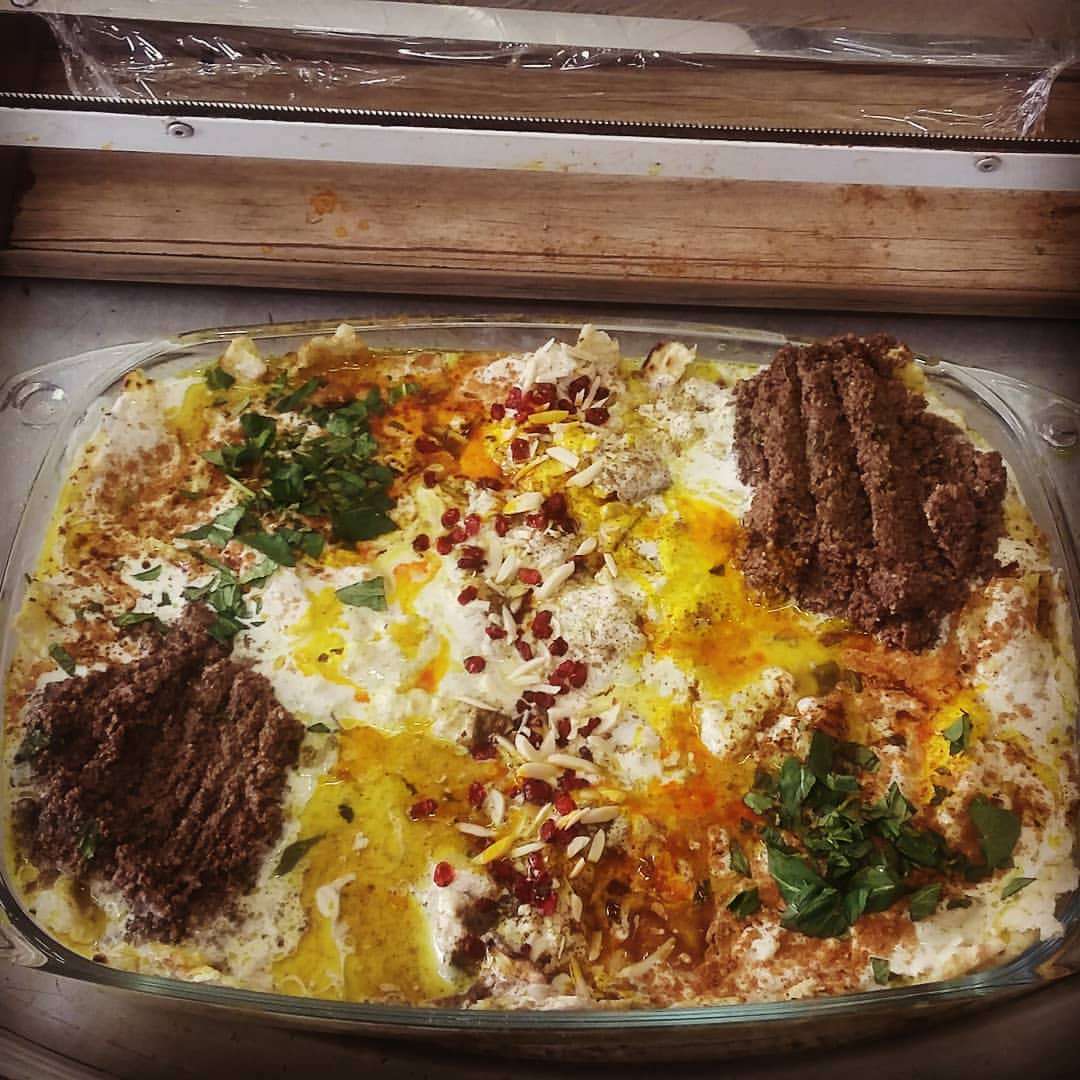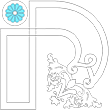From the delicacy of Golden Brocade to the liveliness of 15 Workshops of Handicrafts in Isfahan
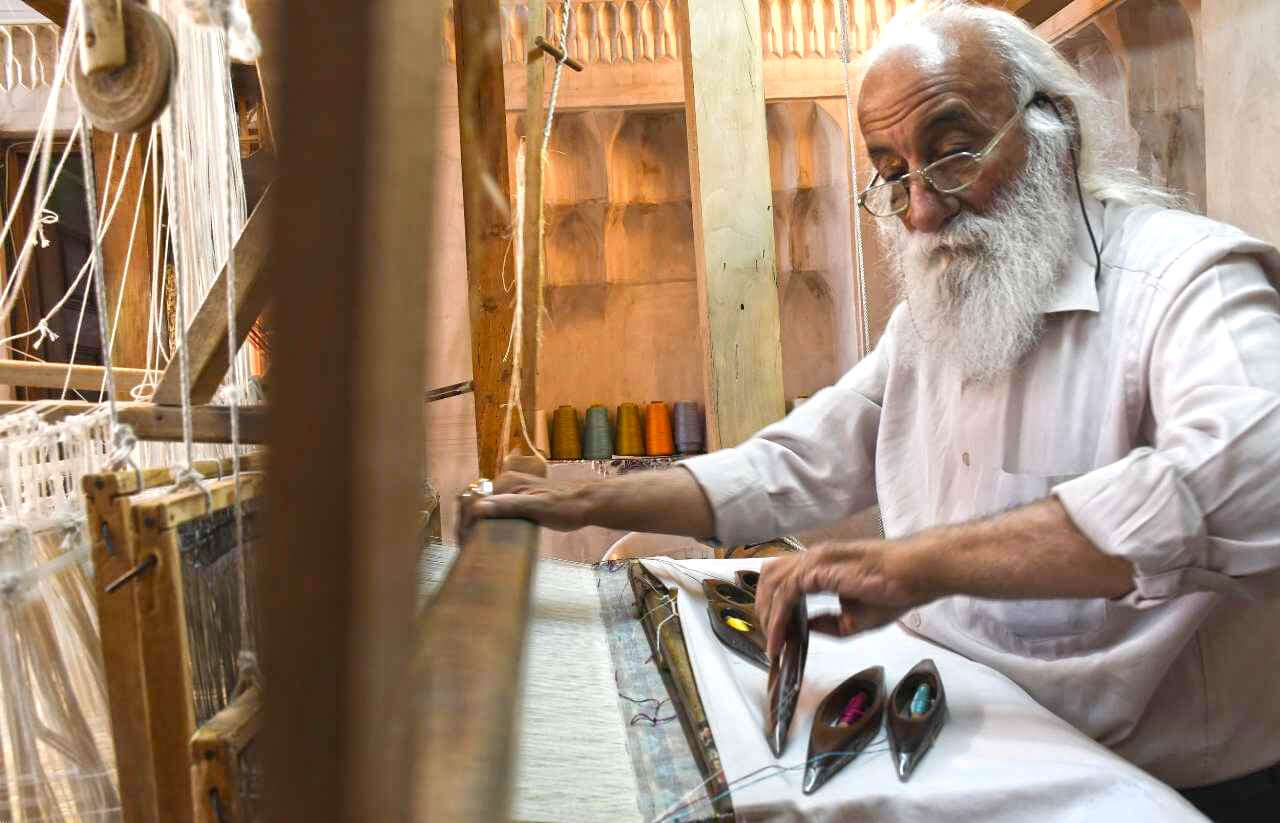
Group Size
Min
3 Person(s)
Max
10 Person(s)
- Duration (Hour)3 hrs
- Visiting Time9 Am to 12 Pm
- Departure PointAt Participant's Accommodation
From €13.00
- Visiting one of the Qajarid houses of Isfahan which make you feel amazed.
- Visiting the last remained workshop of Golden Brocade known as Golabatoun Bafi.
- Visiting a handicraft workshop in a Qajarid house which provides you with almost all the handicrafts you should visit in Isfahan.
- Getting to know different handicrafts of Isfahan, such as: Miniature, Glass Art, Woodwork, Metal-work, Rug weaving, Lacquer Work, Enamel and Inlaid Work.
- Becoming familiar with how these handicrafts are produced in a workshop.
- Buying souvenirs for your family from the first hand trailer.
- Enjoying the traditional food of Isfahan named Biryani.
Photos of the Tour
Tour Packages
- Package 1
Availabilities
Select Preferred Date
Group Size And Pricing
Tour language
Package Description
Inclusions
 Hotel pick up
Hotel pick up Entrance fee
Entrance fee Tour Guide
Tour GuideExclusions
 Lunch
Lunch Hotel drop off
Hotel drop offItinerary
Day 1
- ActivityHandicrafts workshop
- DestinationIsfahan
- Duration3:30 Hours
- DescriptionWe are going to hit two birds with one stone in this special tour of Isfahan handicrafts.
Pick up from accommodation
Visiting Dardasht Neighborhood
Visiting Bokht Agha’s tomb
Brocade Weaving Workshop in Sheikh-al-Islam House
Workshop House
Drop off at your accomodation
- ActivityHandicrafts workshop
- DestinationIsfahan
- Duration3:30 Hours
- DescriptionWe are going to hit two birds with one stone in this special tour of Isfahan handicrafts.
Pick up from accommodation
Visiting Dardasht Neighborhood
Visiting Bokht Agha’s tomb
Brocade Weaving Workshop in Sheikh-al-Islam House
Workshop House
Drop off at your accomodation
Overview
Among the Iranian handicrafts, Isfahan handicrafts, and the masters have enjoyed a distinct status, especially from the Safavid period onward. To name a few, the handicrafts of Isfahan are enamel work (Minakari), inlaid work (Khatam), engraving (Qalamzani), calligraphy (Khoshnevisi), tilework (Kashi Kari), miniature and exquisite carpets and rugs. We will save your time by seeing the highlights of the handicraft workshops in Isfahan. You will visit the Sheikh-Al-Islam house, the glorious mansions in Isfahan, embracing the exquisite mirror work, plasterwork and fabulous inlaid ornamented doors. This building currently houses the workshop of Golabatoub Bafi on the sight of a great master named Mahdi Shamsali. We will also go to Dardasht neighborhood which is one of the oldest districts in Isfahan and visit a Qajarid house there. This 19th century house, outstandingly siting in this district, has been renovated to accommodate a number of handicraft workshops. So to visit and get familiar with the Isfahanian crafts, join us without wasting any more time!
What To Expect
Combine visits to the old neighborhoods and handicraft workshops on
this tour. With our pick-up service
from your accommodation, you do not need to have difficulty finding backstreet
neighborhoods of Isfahan. Your tour of
handicrafts includes visiting the production process of the handicrafts in the
workshops of Isfahan. We will take you to the
Sheikh-Al-Islam house where you can see the workshop of Golabatoun Bafi, also
known as Zaribafi (Brocade weaving) recognized as one of the age-old
Persian handicrafts.
The Persian brocade fabrics are woven
by silk threads covered with gold or silver. The Master of Zari Bafi
(Golabatoun Bafi), named Mehdi Shamsali is the last master of Isfahan who is
practicing brocade in its original and traditional way.
After visiting this unique workshop, we
will take you to one of the main neighborhoods of Isfahan known as Dardasht.
Dardasht neighborhood is one of the oldest
districts of Isfahan, dating back to the Seljuk era (11 century). In this era
and exactly in the same neighborhood, the first urban developments of the city
of Isfahan started and consequently the Jame Mosque, known also as AtighMosque, a bathhouse, caravanserai and bazar were built.
After giving an introduction about the history of this district, we
enter a historical house dating back to the 19th century. The house
is a square-shaped courtyard encircled by the rooms. The most
spectacular part of the house is the southern part comprising a higher porch
(ayvan) and a central hall overlooking the courtyard. The hall is graced with
five-door stained windows and frescos adorning the wall and ceiling. A pool
room (howz-khaneh), with an octagonal pool in the middle, lies on the space
between the western and southern part of the house. It connects the southern
hall to the western spaces of the house through a wooden door. Unlike the
typical handicraft shops you may visit in Isfahan, this house includes a
number of handicraft workshops in which you can observe the process
of making while you buy the crafts.
First, we go to see the glassworks whose
master won the national award for his abstract work of art. He will show us the
way he has given a Persian identity to his glasswork.
In the next step, you will be familiar with the rug
workshop (Kilim) in which the master will show you how to weave a rug and
you can get involved in the weaving process.
If you are a woman, you will love the next
workshop and if you are a man, you can get a nice gift for the woman you love.
You ask why? I will tell you now.
This room embraces a delicate work of art of filigree
trophies, bowls and buttons. The master is making filigree jewelries all by
his skillful hands and adorn them by precious metals such as gold and silver.
This ancient filigree jewelry was discovered and unearthed in the ancient
Mesopotamian lands about 5000 years ago and found its way to the other parts of
the world especially throughout the Roman Empire.
Are you interested in music? How about musical
instruments? In the next workshop, you will see how the master of woodwork
breathes a new life into the pieces of wood and makes the famous Iranian musical
instruments such as Setar and Tar.
This is not the end of the story, lots of other
workshops such as the Persian marquetry known as Khatam Kari is still
waiting for you. Khatam consists of sticks of wood, brass, camel bones and
twisted wires. Ivory, gold and silver are also used for exclusive
products. The beams are cut in triangular shape and put together to form a
cylinder. Then, these cylinders are cut shorter, compressed, plated and glued
to decorate the object.
The next room introduces the master of locksmithing,
Hassan Kiani, who has made more than 200 different vintage locks. The animal
motifs inspired the artists in making this delicate artwork. These unique locks
have found their ways to the Louvre Museum. Don’t miss to ask them to show you
the tiny locks.
We continue our handicraft workshop tour by going
next door to see the beautiful art on the cotton textiles. Mr. Ebadi is an
artist in Kalamkari or block printing. The Persian word Kalamkari (also
Qalam Kari) consists of kalam or qalam (pen) and kari (craftsmanship) meaning
drawing with a pen. This freehand drawing used to be practiced since Sassanid
era which is replaced by block printing nowadays. Miniature, metalwork, lacquer
work and enamel are also practiced in this house.
Finally, after spending enough time on shopping
and gaining knowledge about handicrafts, it’s cool to
take Biryani for lunch in Haj Mahmud restaurant which is recommended by
the Lonely Planet. Remember, if you want to have lunch, you should inform
us earlier to book a table for you.
The Persian brocade fabrics are woven
by silk threads covered with gold or silver. The Master of Zari Bafi
(Golabatoun Bafi), named Mehdi Shamsali is the last master of Isfahan who is
practicing brocade in its original and traditional way.
After visiting this unique workshop, we
will take you to one of the main neighborhoods of Isfahan known as Dardasht.
Dardasht neighborhood is one of the oldest
districts of Isfahan, dating back to the Seljuk era (11 century). In this era
and exactly in the same neighborhood, the first urban developments of the city
of Isfahan started and consequently the Jame Mosque, known also as Atigh
Mosque, a bathhouse, caravanserai and bazar were built.
After giving an introduction about the history of this district, we
enter a historical house dating back to the 19th century. The house
is a square-shaped courtyard encircled by the rooms. The most
spectacular part of the house is the southern part comprising a higher porch
(ayvan) and a central hall overlooking the courtyard. The hall is graced with
five-door stained windows and frescos adorning the wall and ceiling. A pool
room (howz-khaneh), with an octagonal pool in the middle, lies on the space
between the western and southern part of the house. It connects the southern
hall to the western spaces of the house through a wooden door. Unlike the
typical handicraft shops you may visit in Isfahan, this house includes a
number of handicraft workshops in which you can observe the process
of making while you buy the crafts.
First, we go to see the glassworks whose
master won the national award for his abstract work of art. He will show us the
way he has given a Persian identity to his glasswork.
In the next step, you will be familiar with the rug
workshop (Kilim) in which the master will show you how to weave a rug and
you can get involved in the weaving process.
If you are a woman, you will love the next
workshop and if you are a man, you can get a nice gift for the woman you love.
You ask why? I will tell you now.
This room embraces a delicate work of art of filigree
trophies, bowls and buttons. The master is making filigree jewelries all by
his skillful hands and adorn them by precious metals such as gold and silver.
This ancient filigree jewelry was discovered and unearthed in the ancient
Mesopotamian lands about 5000 years ago and found its way to the other parts of
the world especially throughout the Roman Empire.
Are you interested in music? How about musical
instruments? In the next workshop, you will see how the master of woodwork
breathes a new life into the pieces of wood and makes the famous Iranian musical
instruments such as Setar and Tar.
This is not the end of the story, lots of other
workshops such as the Persian marquetry known as Khatam Kari is still
waiting for you. Khatam consists of sticks of wood, brass, camel bones and
twisted wires. Ivory, gold and silver are also used for exclusive
products. The beams are cut in triangular shape and put together to form a
cylinder. Then, these cylinders are cut shorter, compressed, plated and glued
to decorate the object.
The next room introduces the master of locksmithing,
Hassan Kiani, who has made more than 200 different vintage locks. The animal
motifs inspired the artists in making this delicate artwork. These unique locks
have found their ways to the Louvre Museum. Don’t miss to ask them to show you
the tiny locks.
We continue our handicraft workshop tour by going
next door to see the beautiful art on the cotton textiles. Mr. Ebadi is an
artist in Kalamkari or block printing. The Persian word Kalamkari (also
Qalam Kari) consists of kalam or qalam (pen) and kari (craftsmanship) meaning
drawing with a pen. This freehand drawing used to be practiced since Sassanid
era which is replaced by block printing nowadays. Miniature, metalwork, lacquer
work and enamel are also practiced in this house.
Finally, after spending enough time on shopping
and gaining knowledge about handicrafts, it’s cool to
take Biryani for lunch in Haj Mahmud restaurant which is recommended by
the Lonely Planet. Remember, if you want to have lunch, you should inform
us earlier to book a table for you.
Important Information
Additional Info
- Your booking will be confirmed via an e-mail including updated prices.
- We reserve the right to impose changes on prices due to the economic fluctuations.
Cancellation Policy
- Bookings missed or cancelled within determined hours will incur a strike against participants as below charges:
- Before 48 hrs: 25 %
- Before 24 hrs: 50 %
- Within 24 hrs: non-refundable
